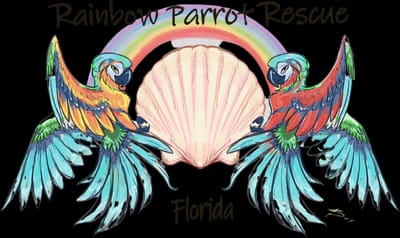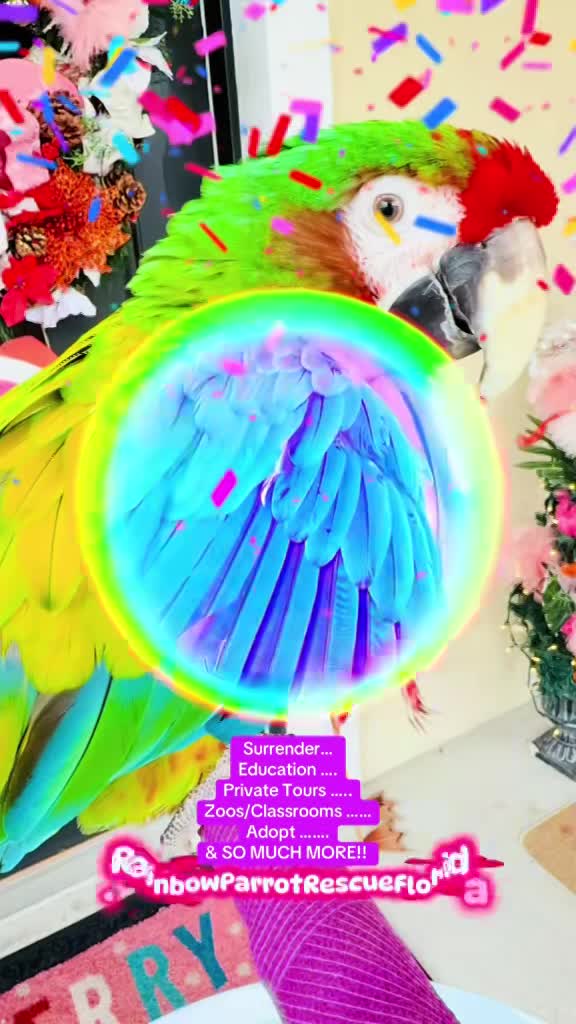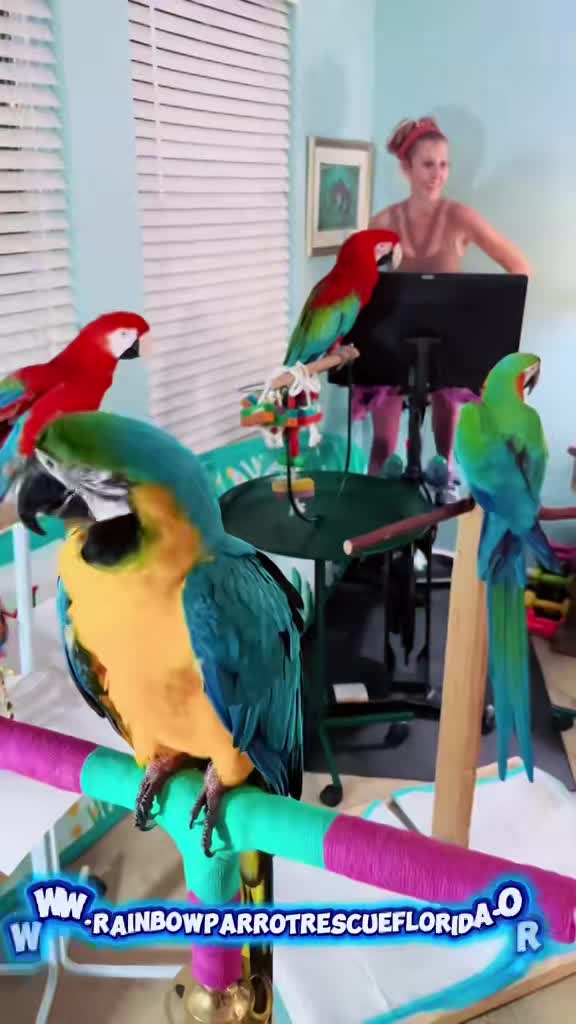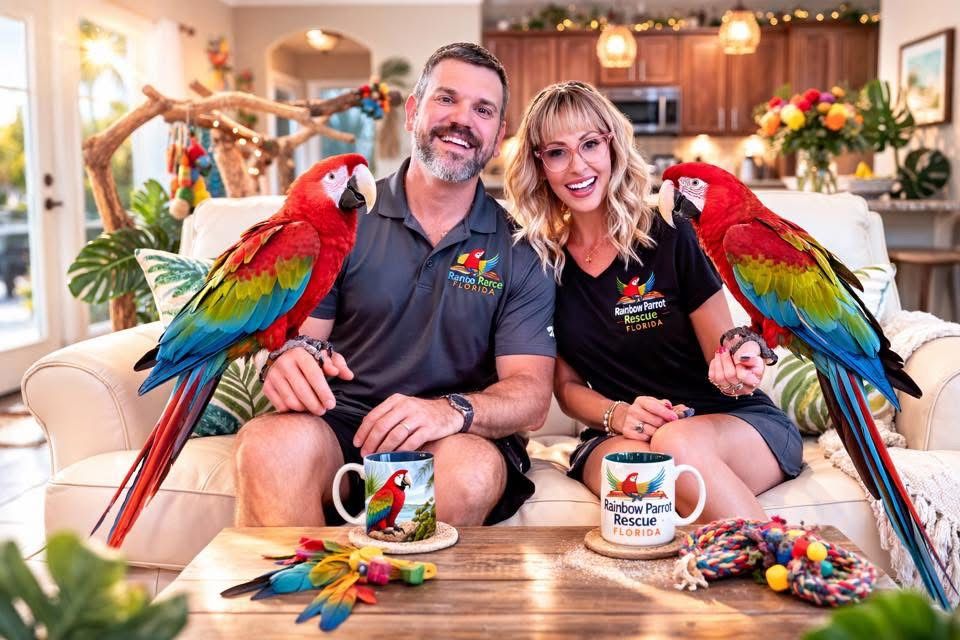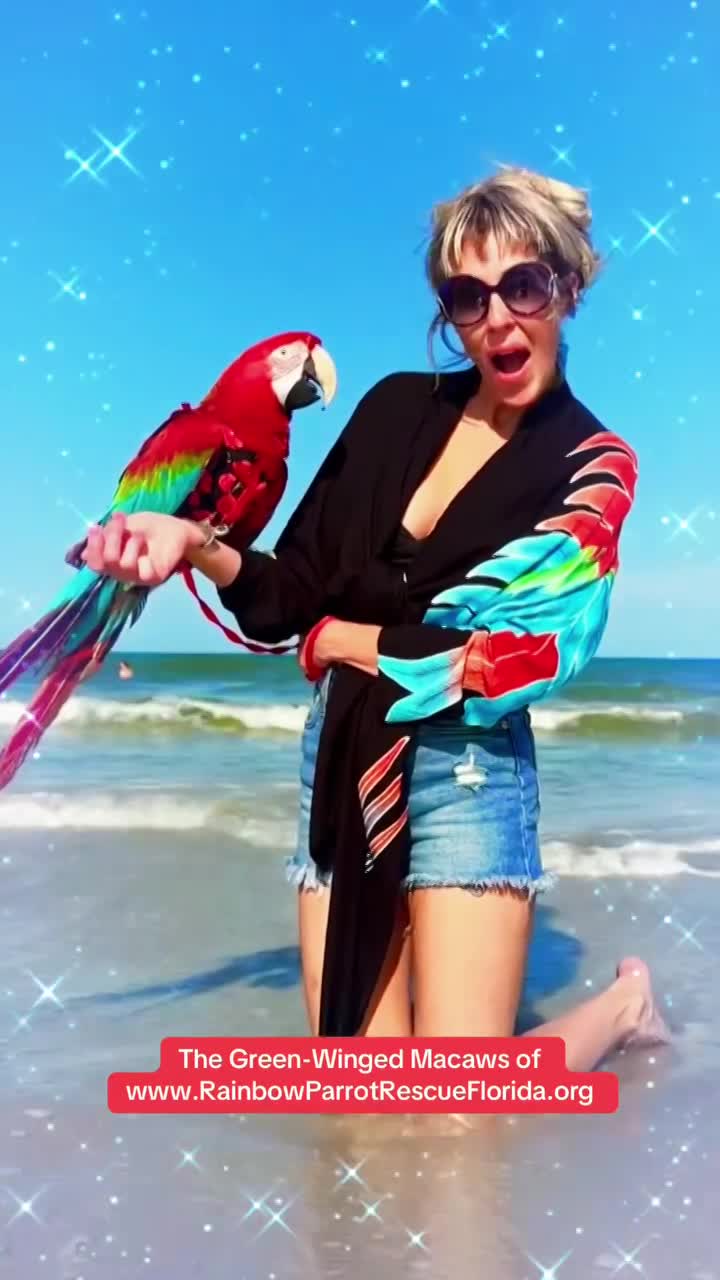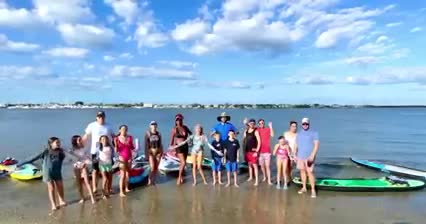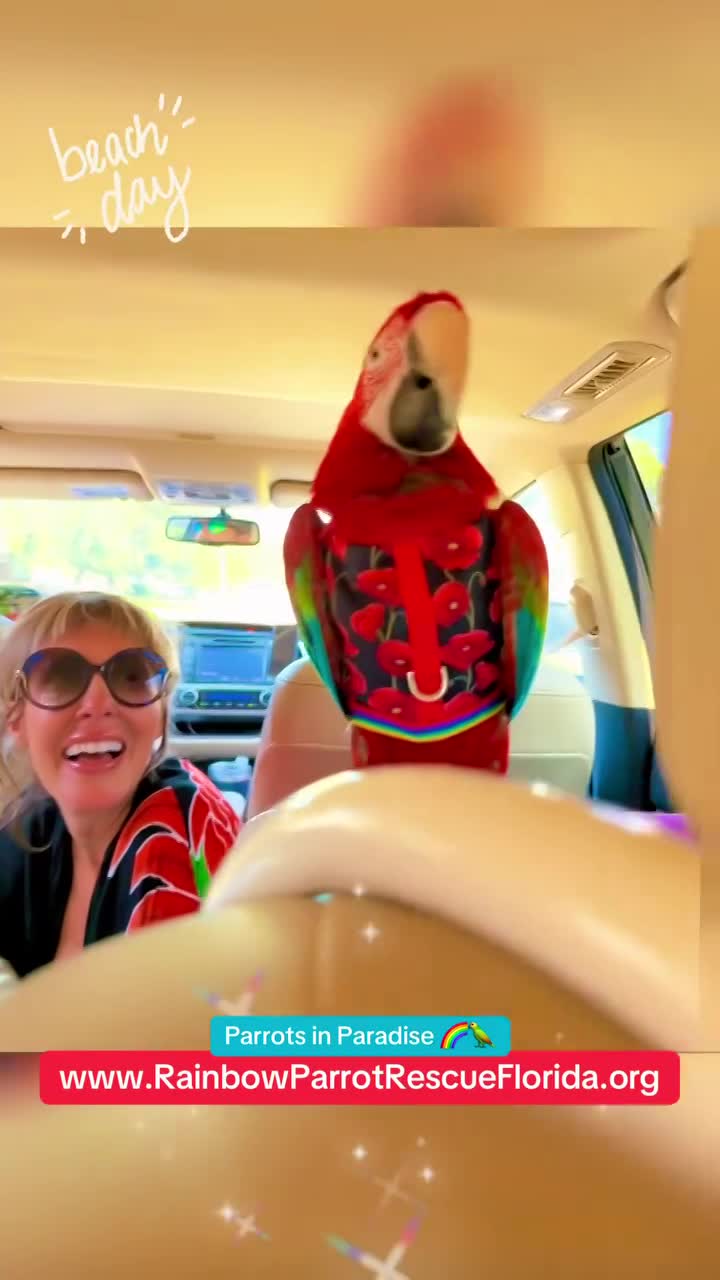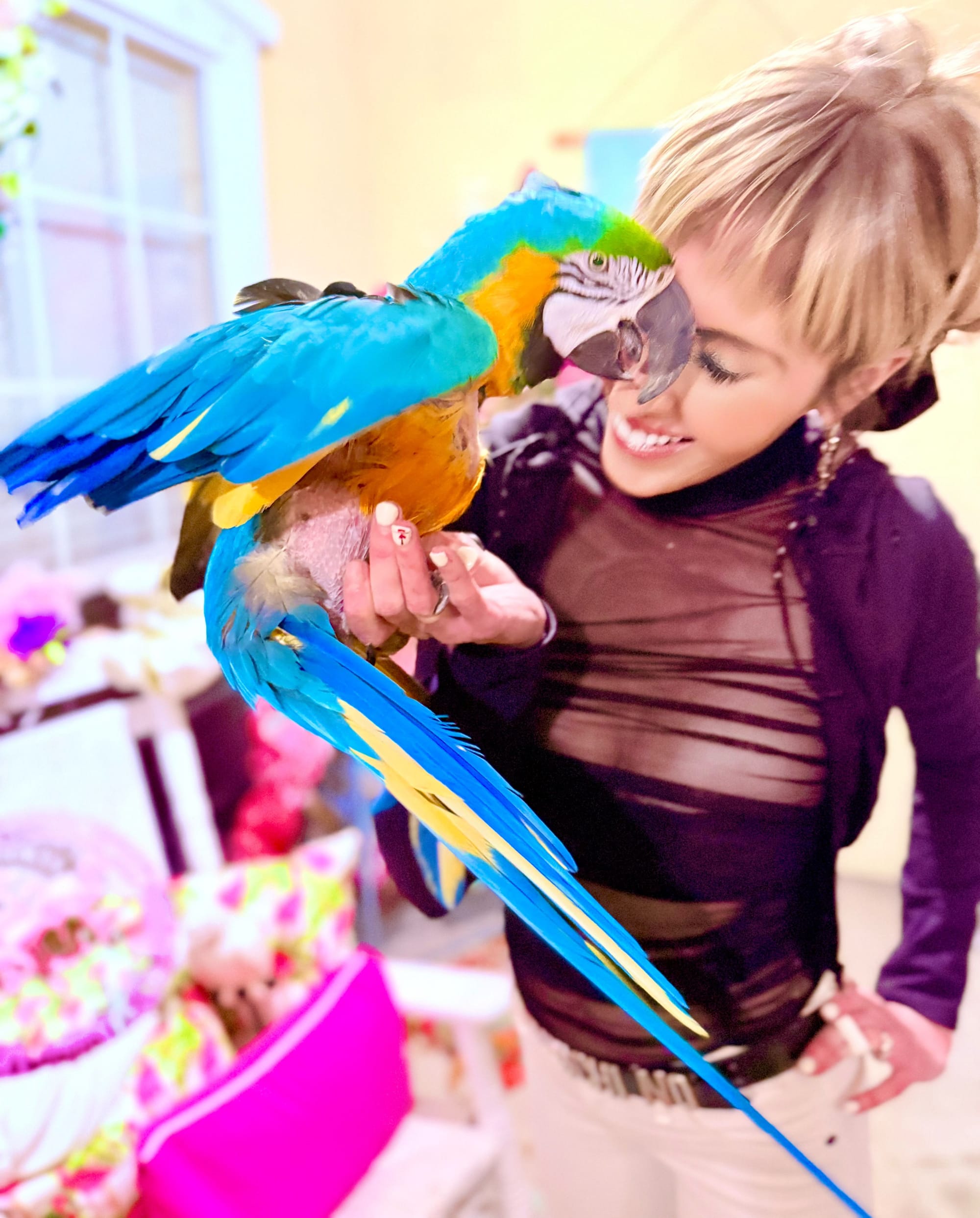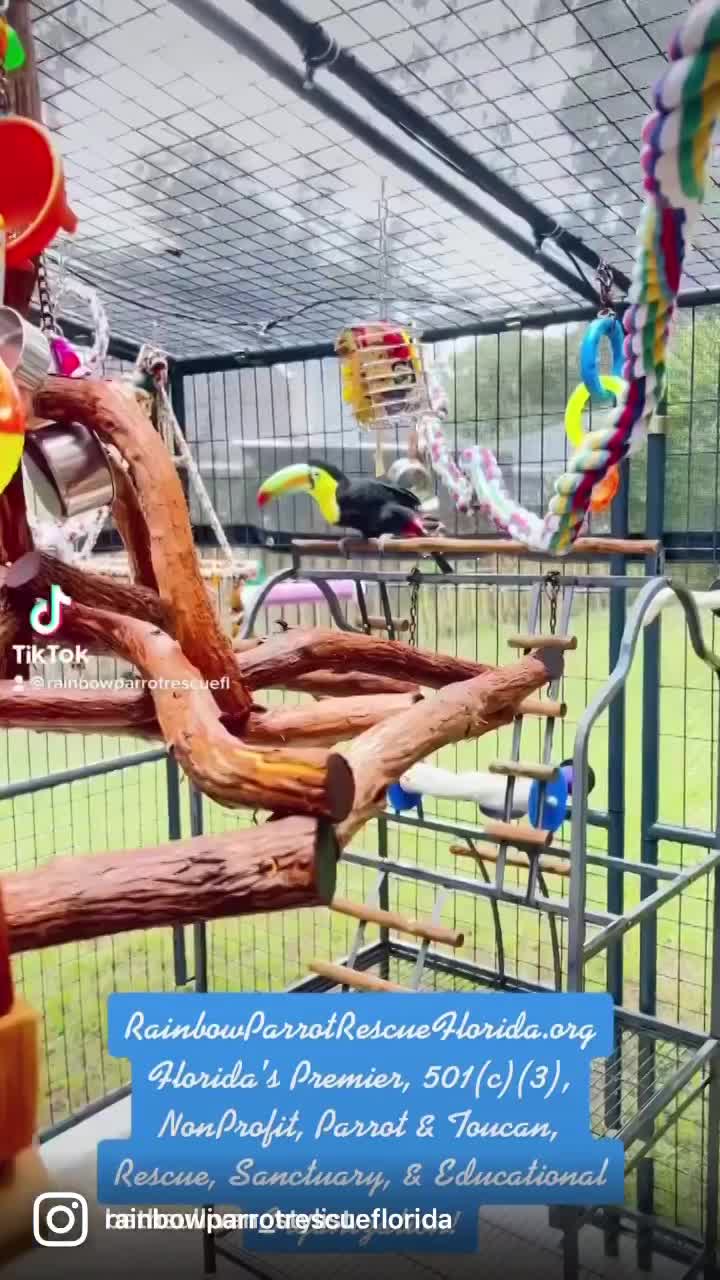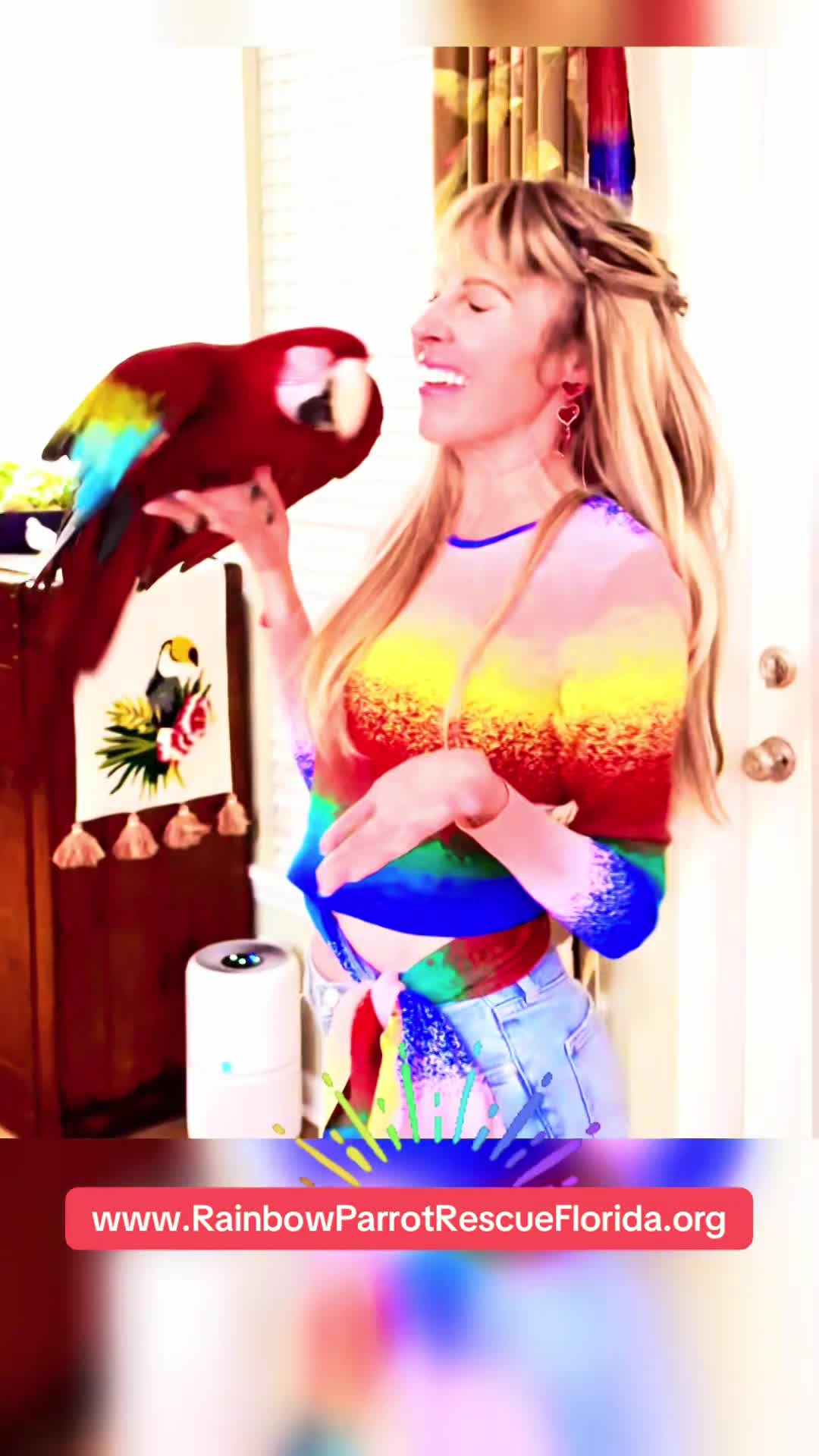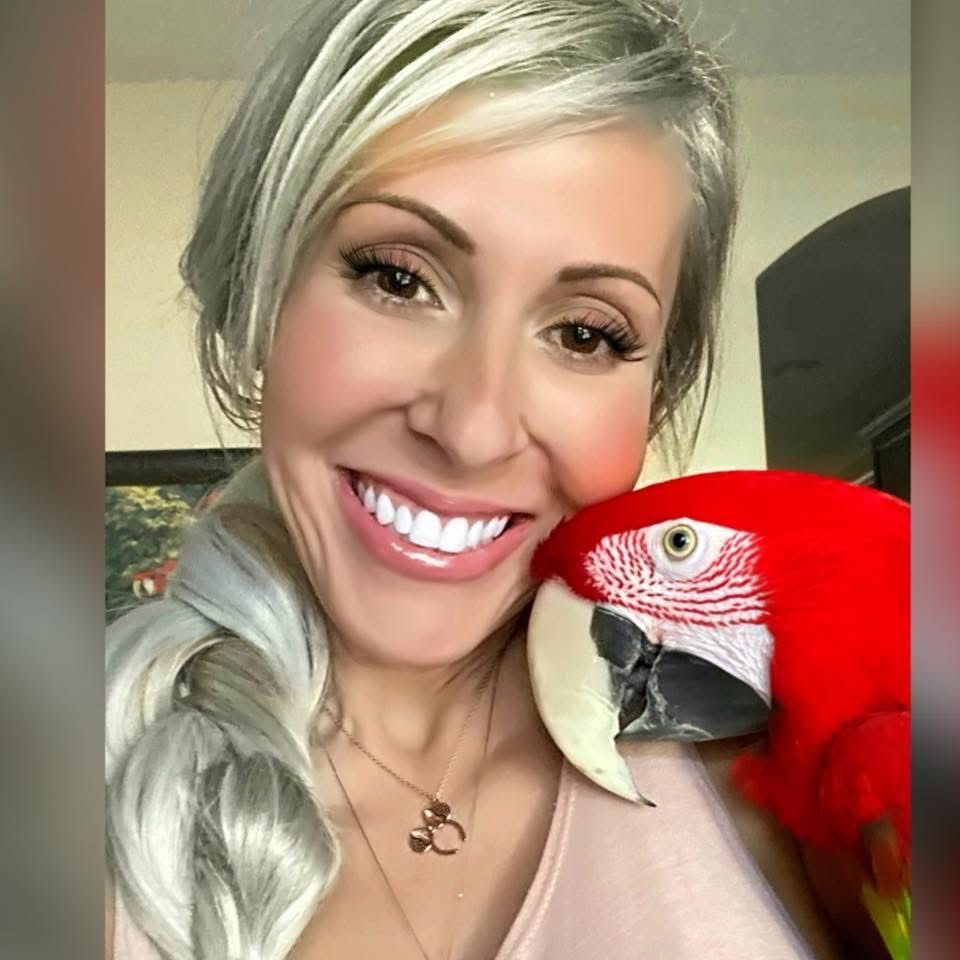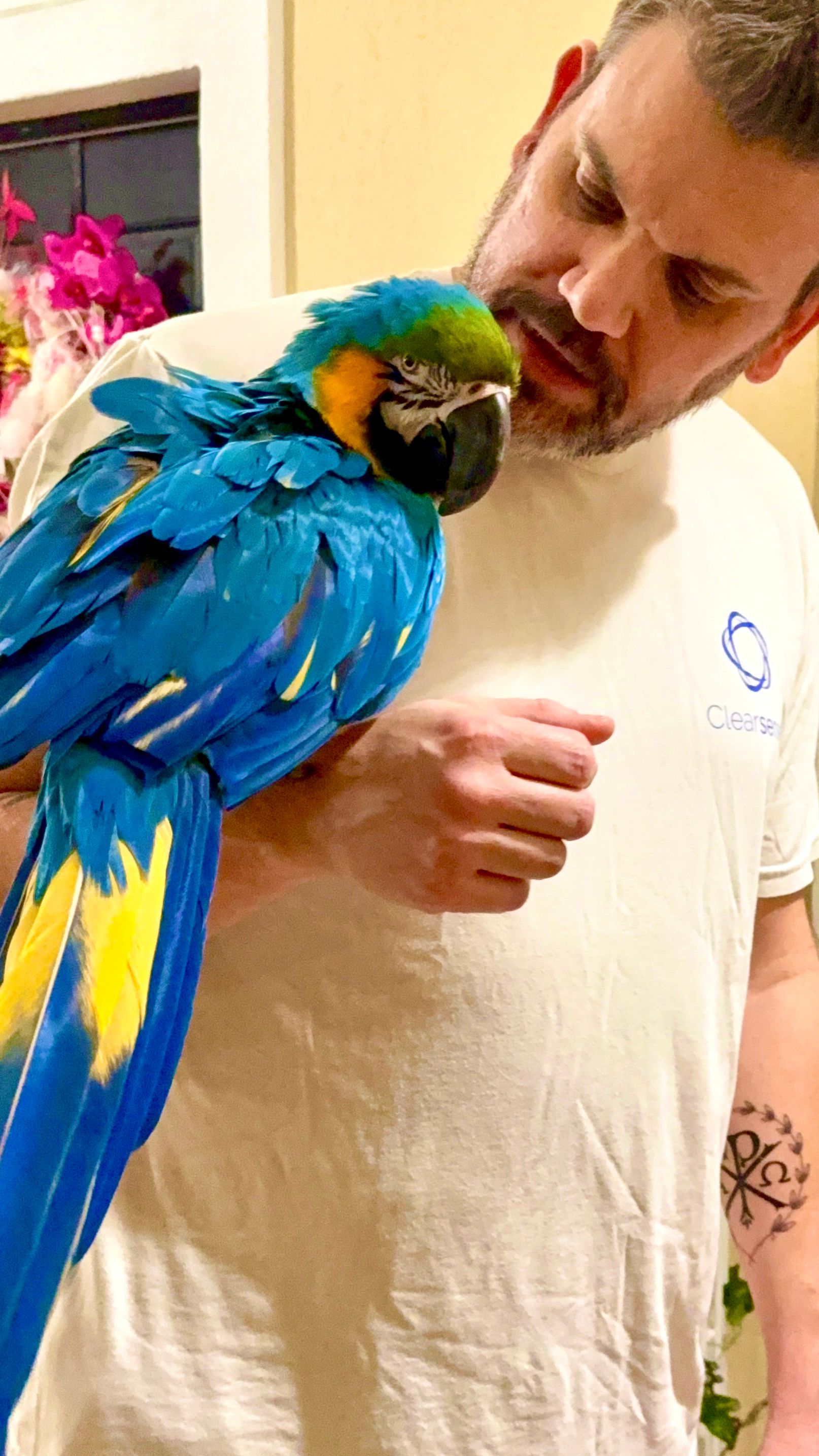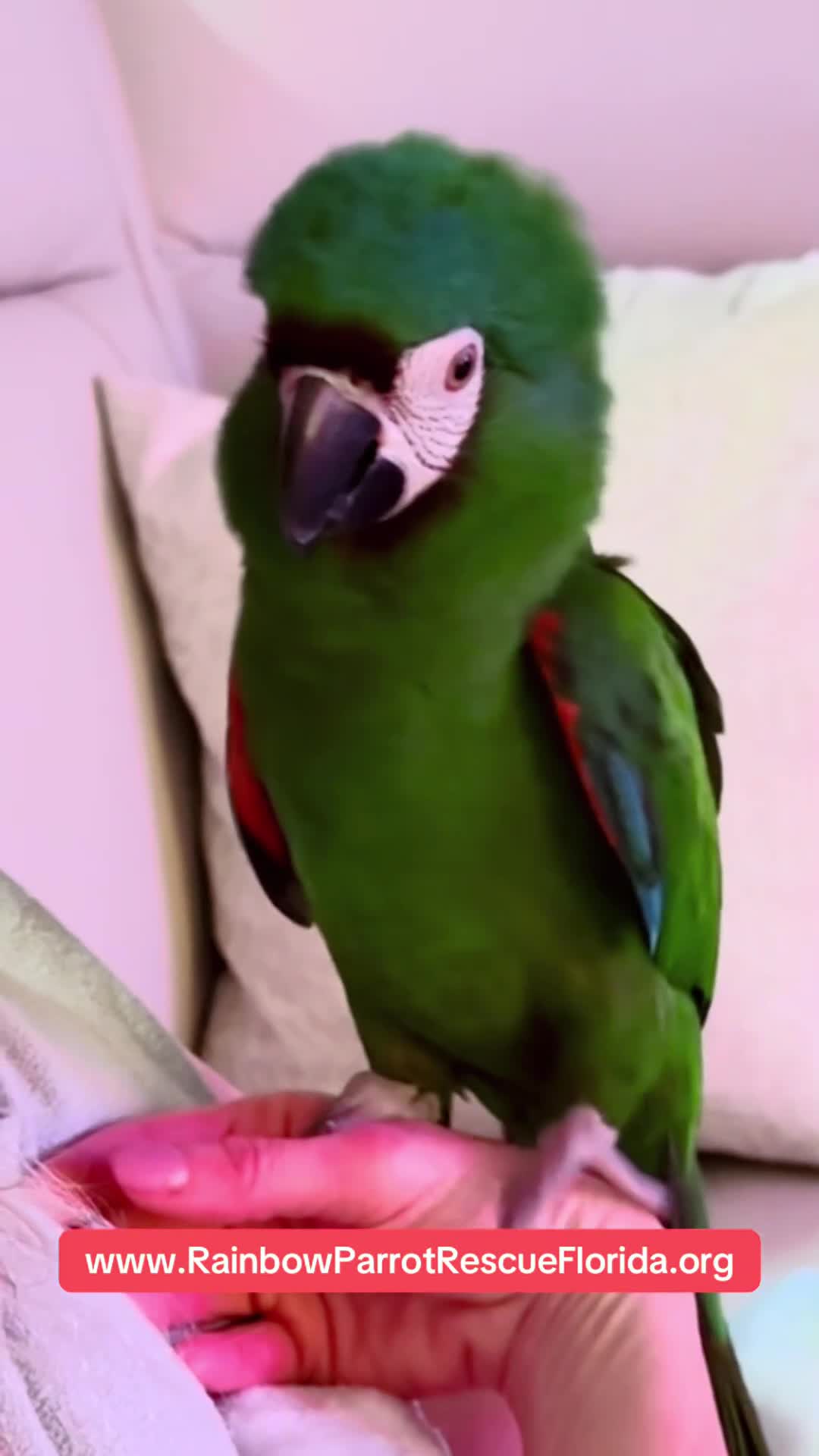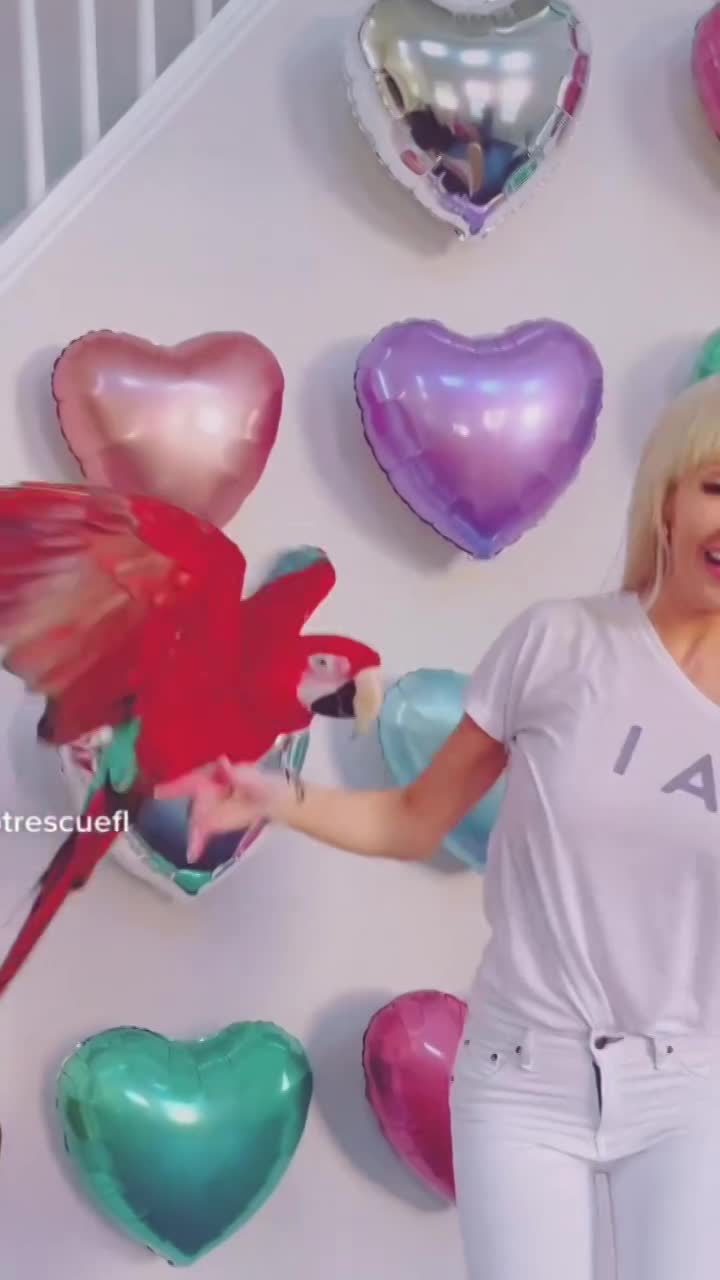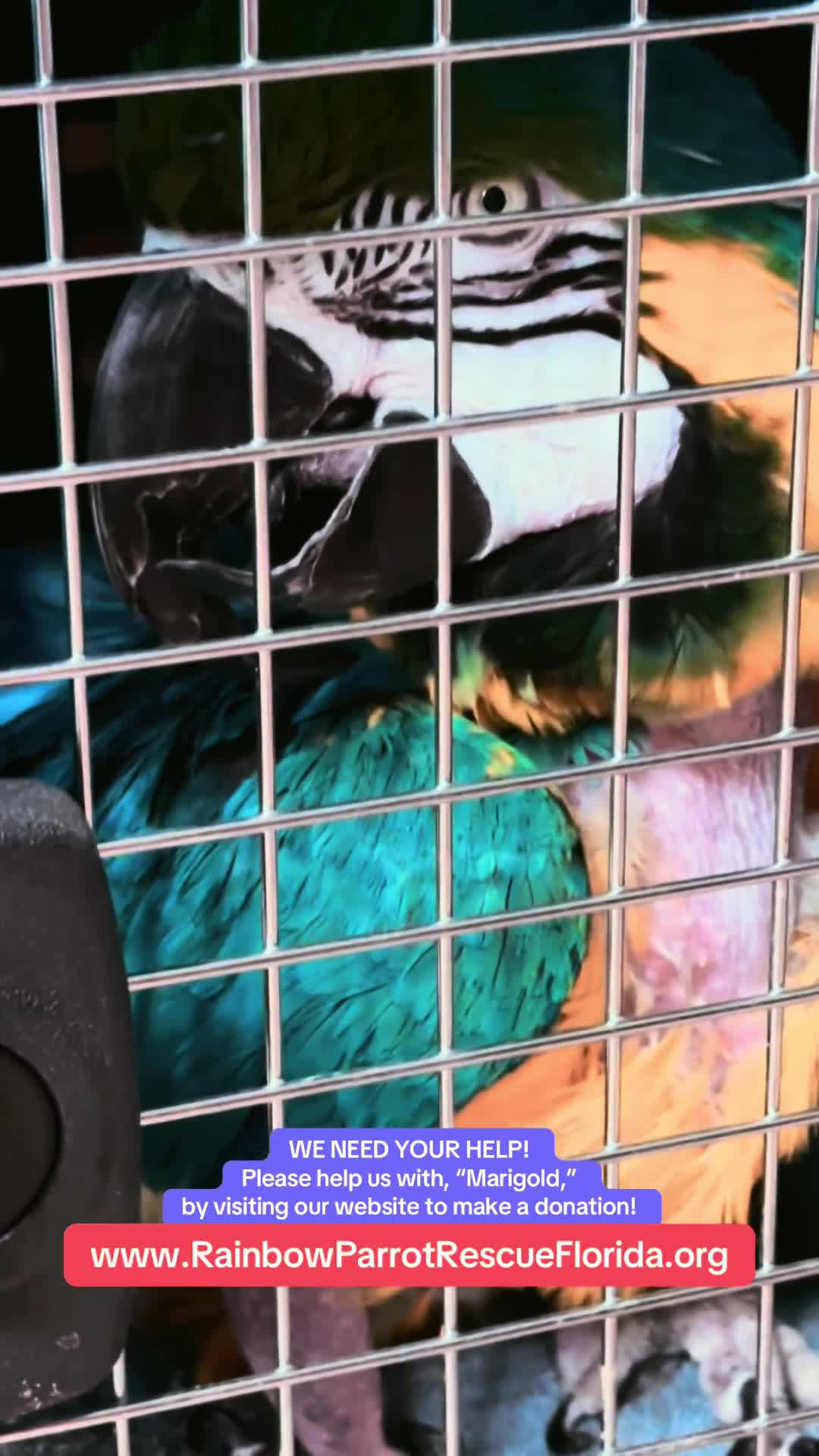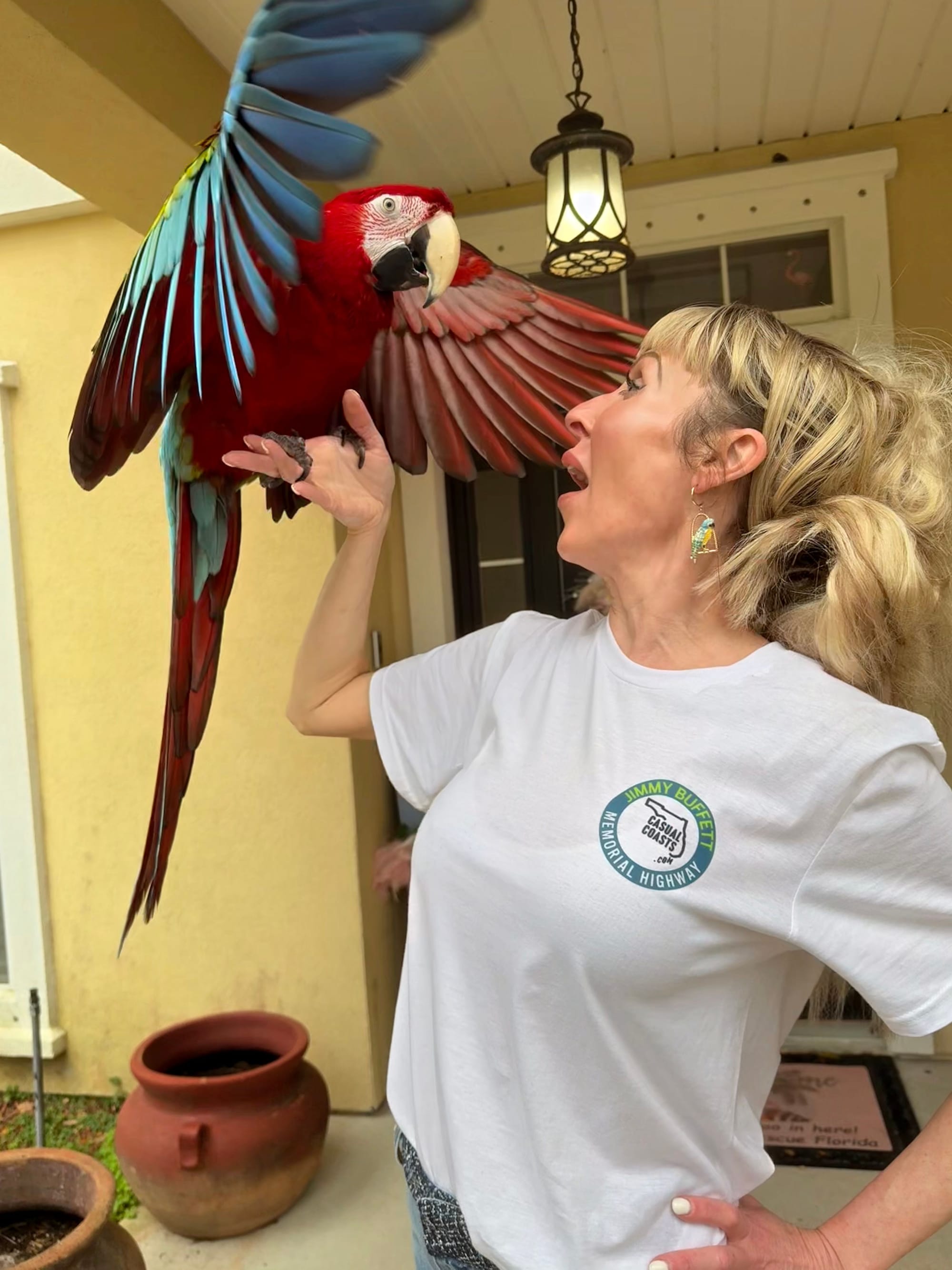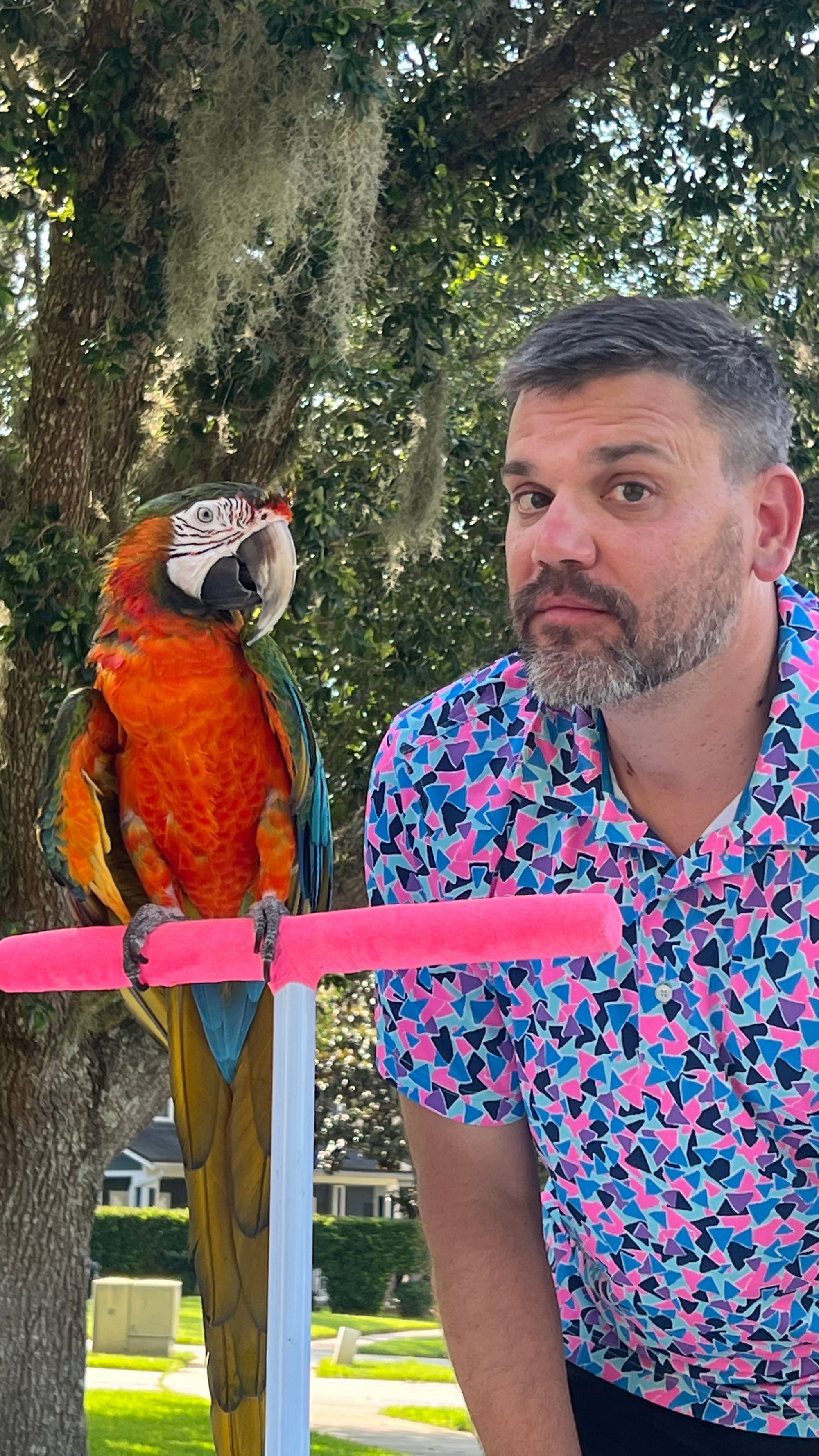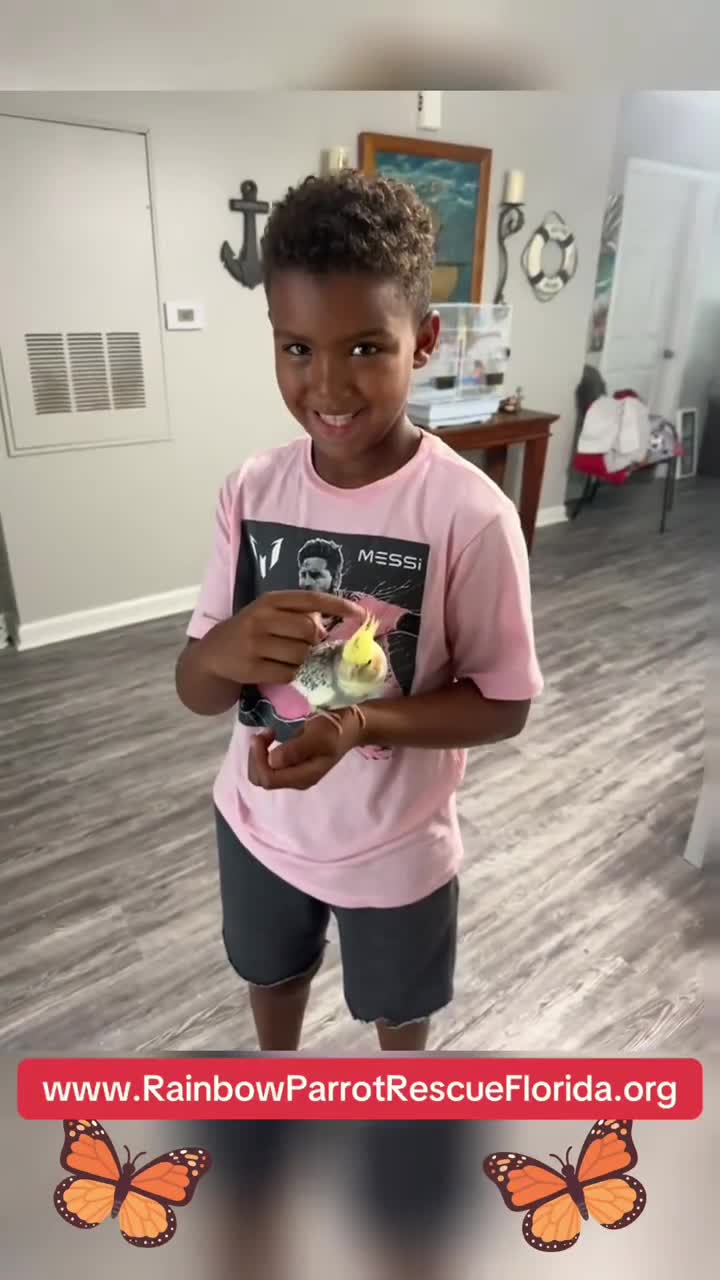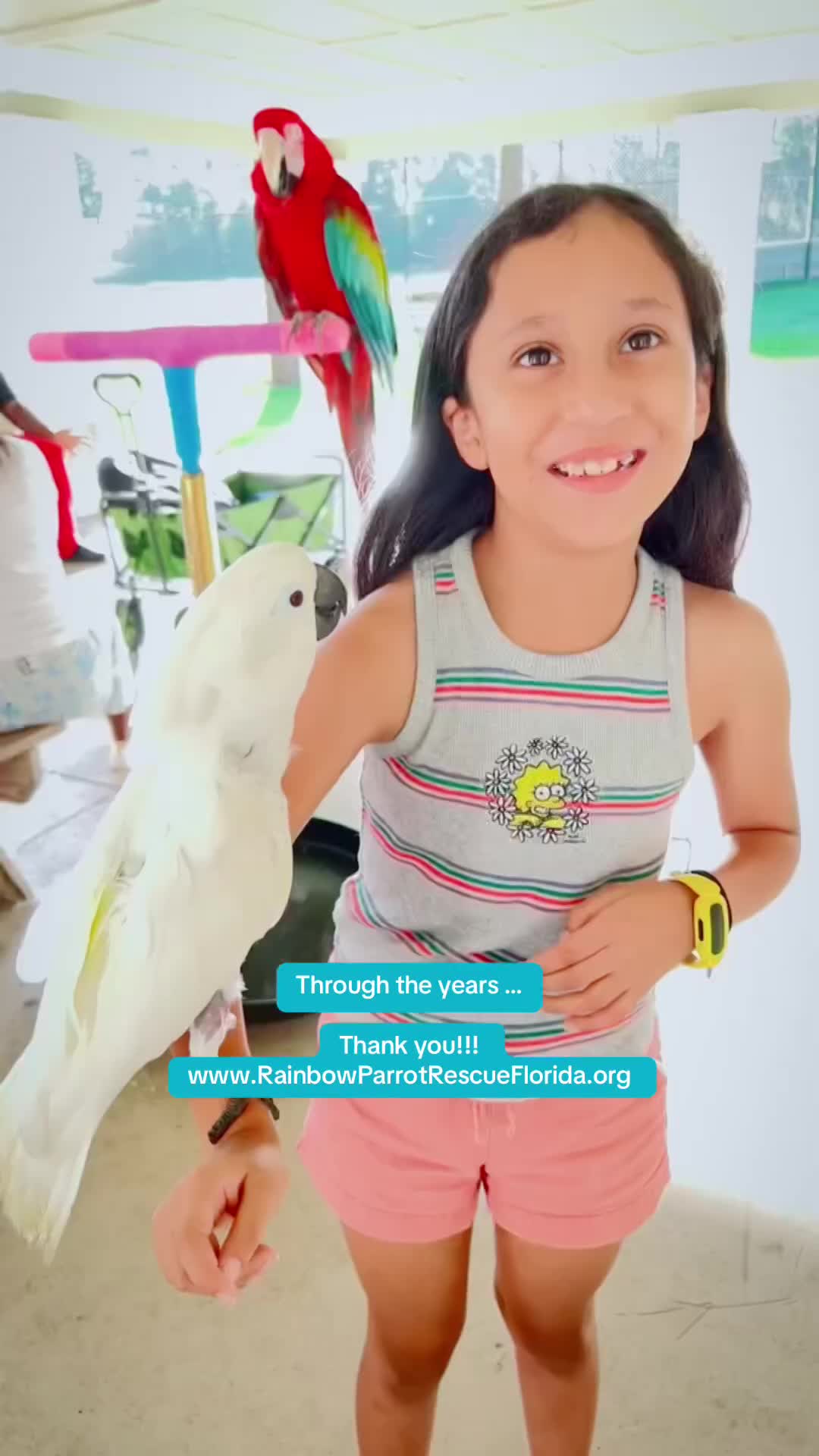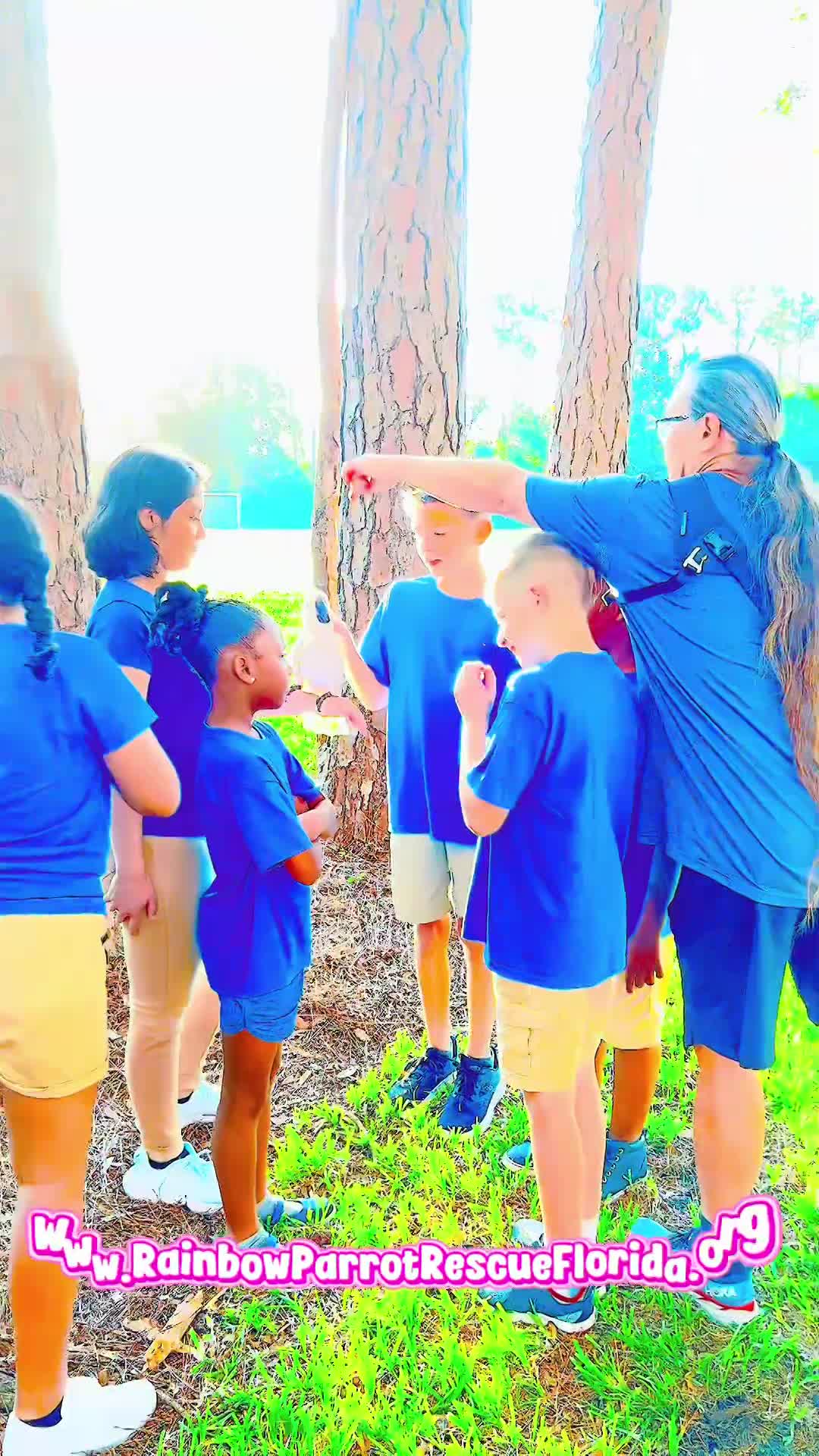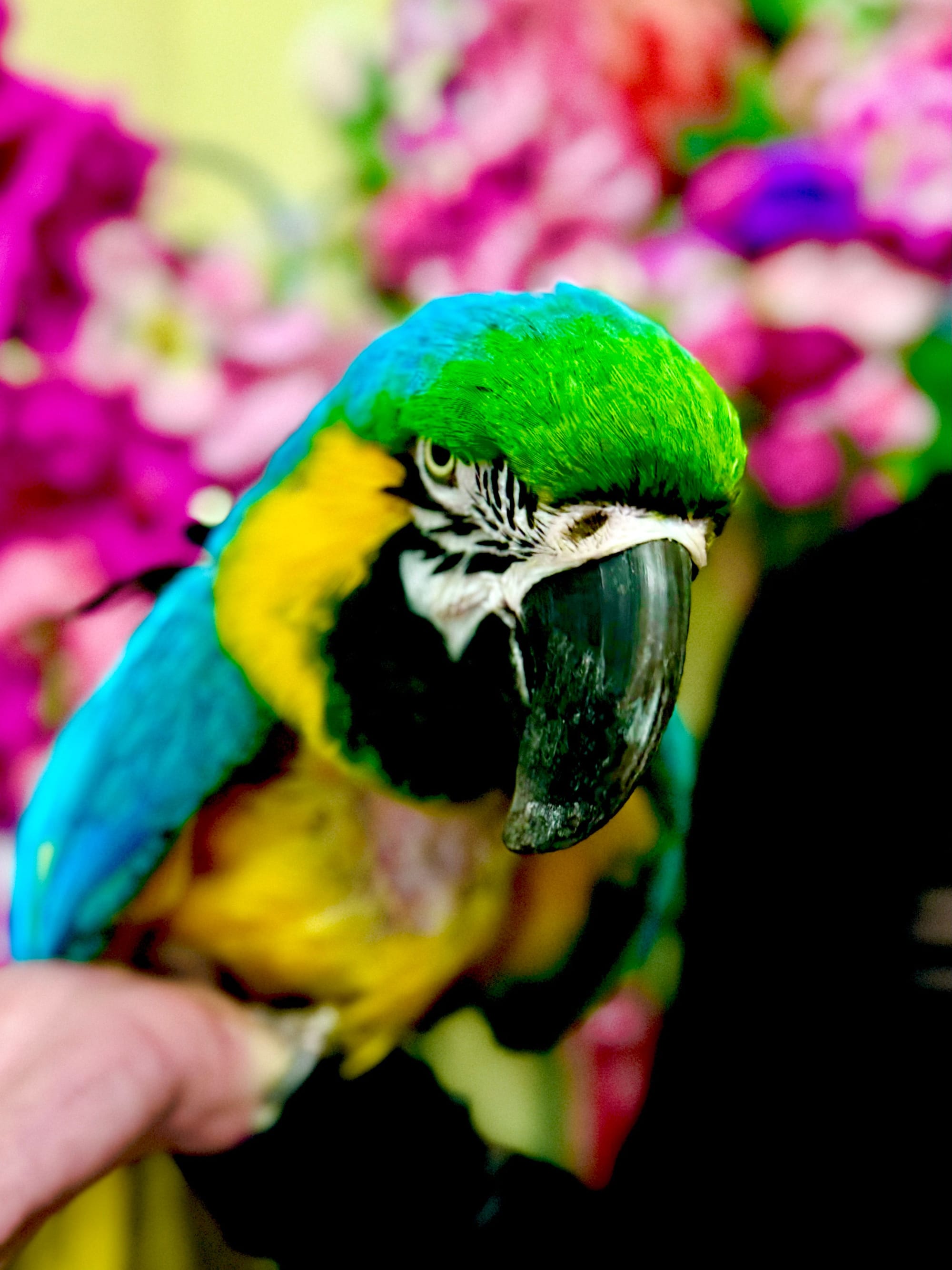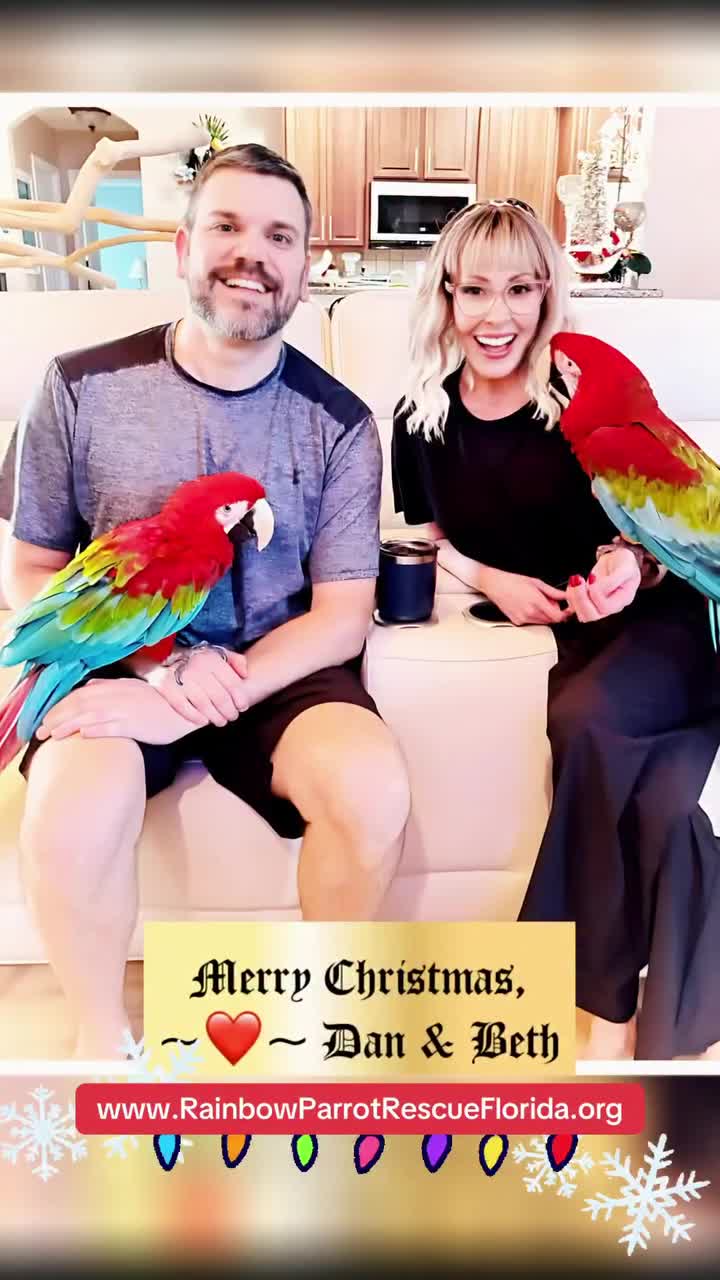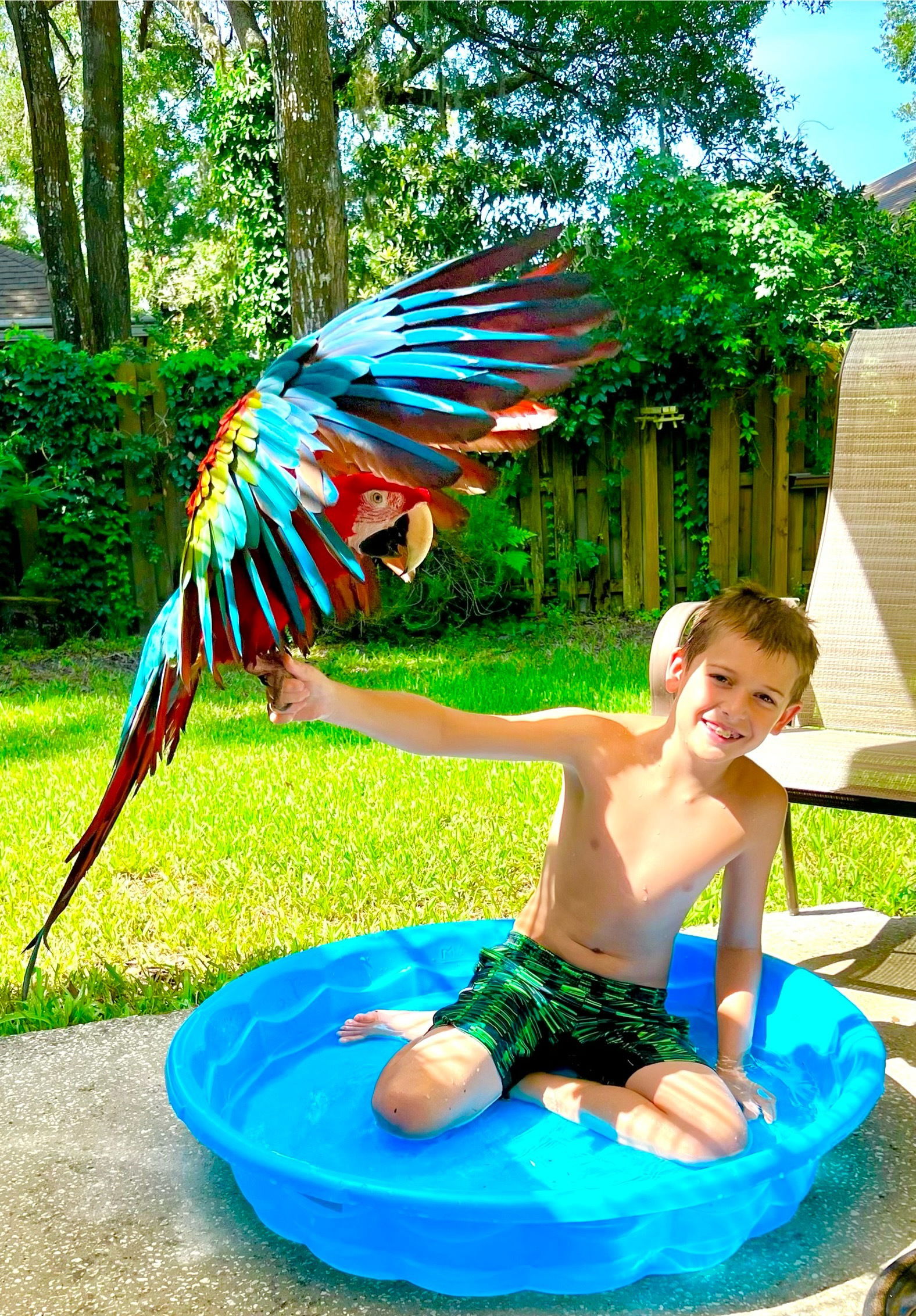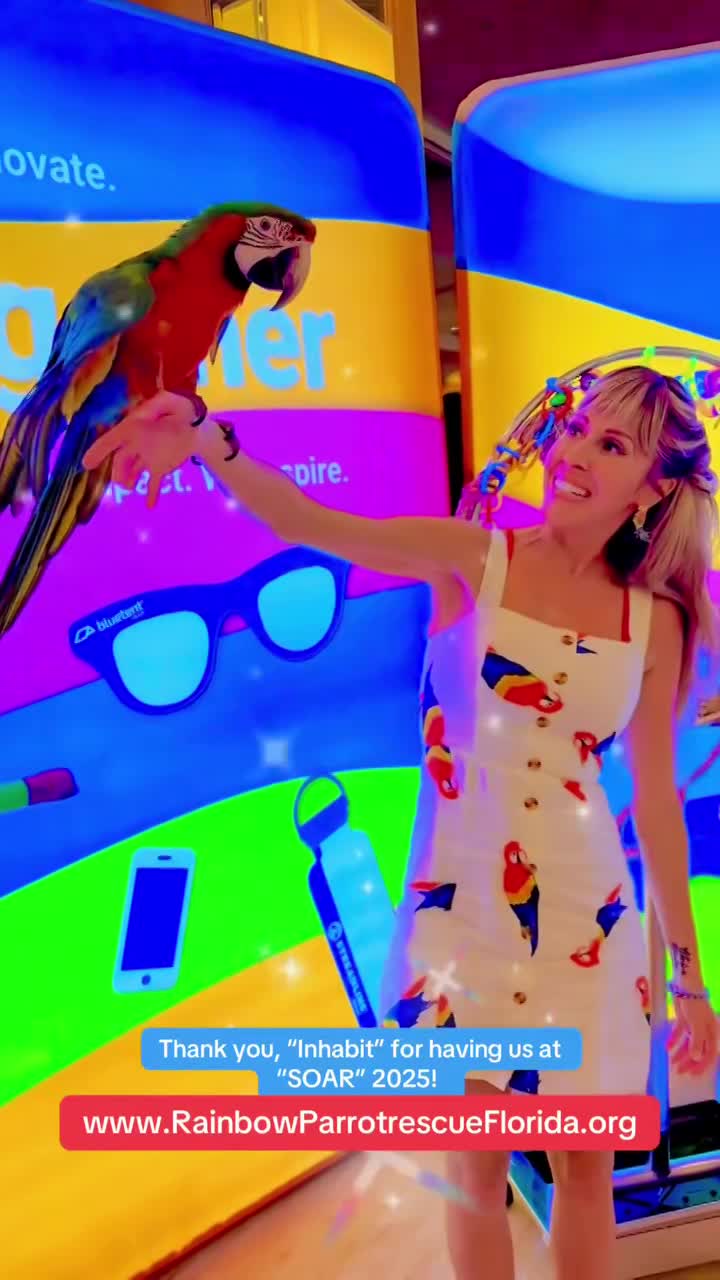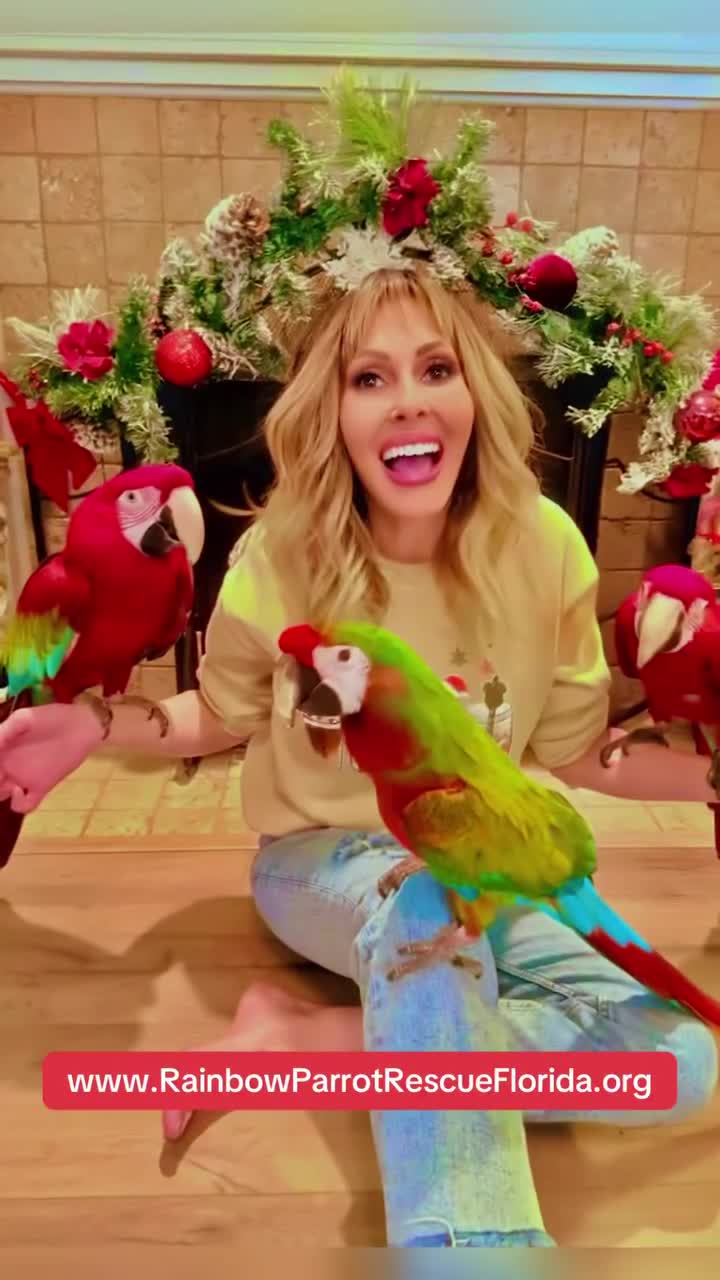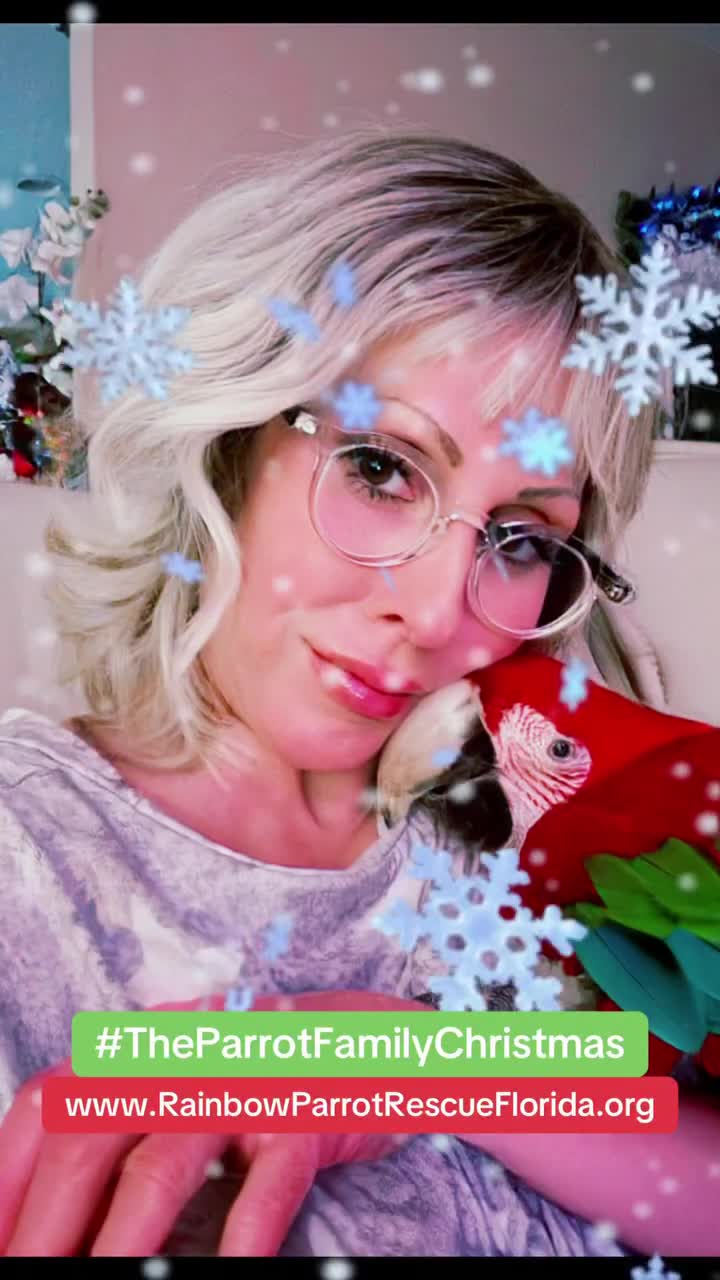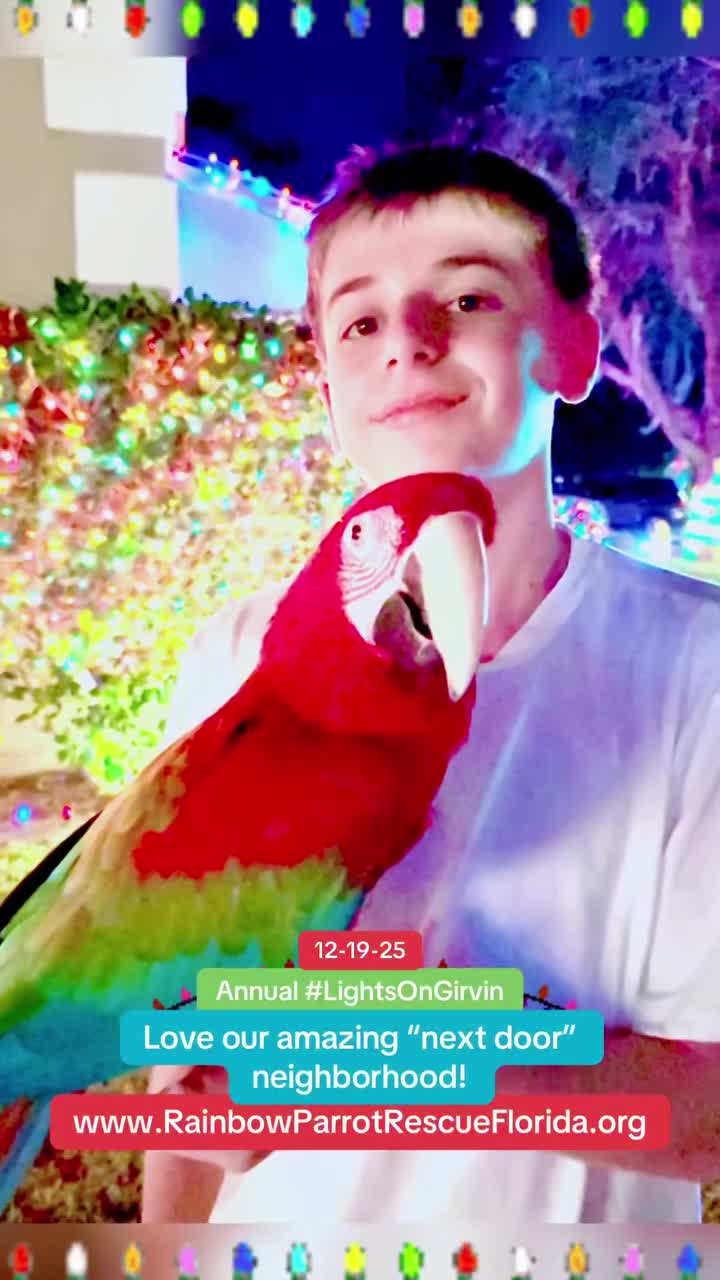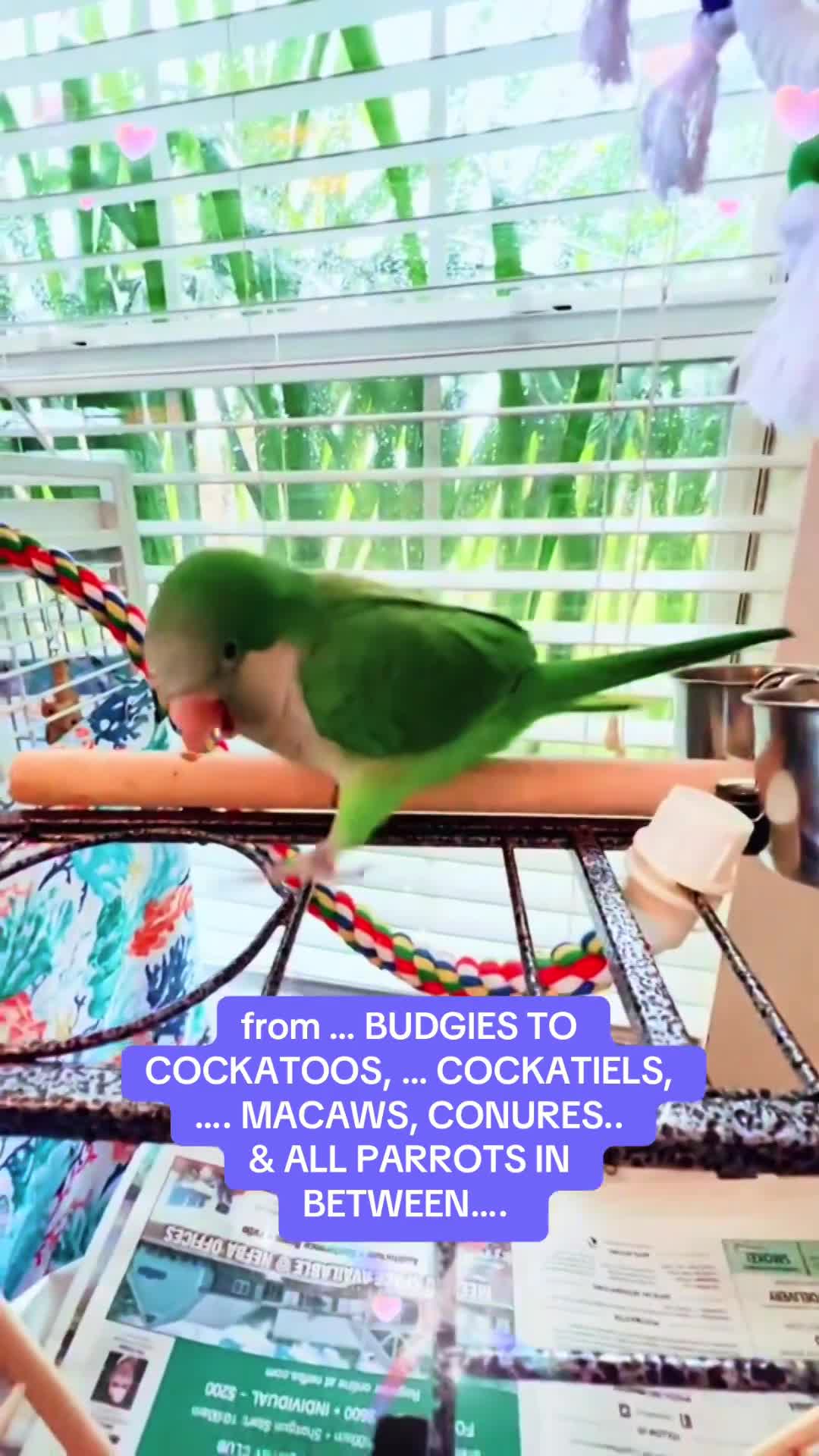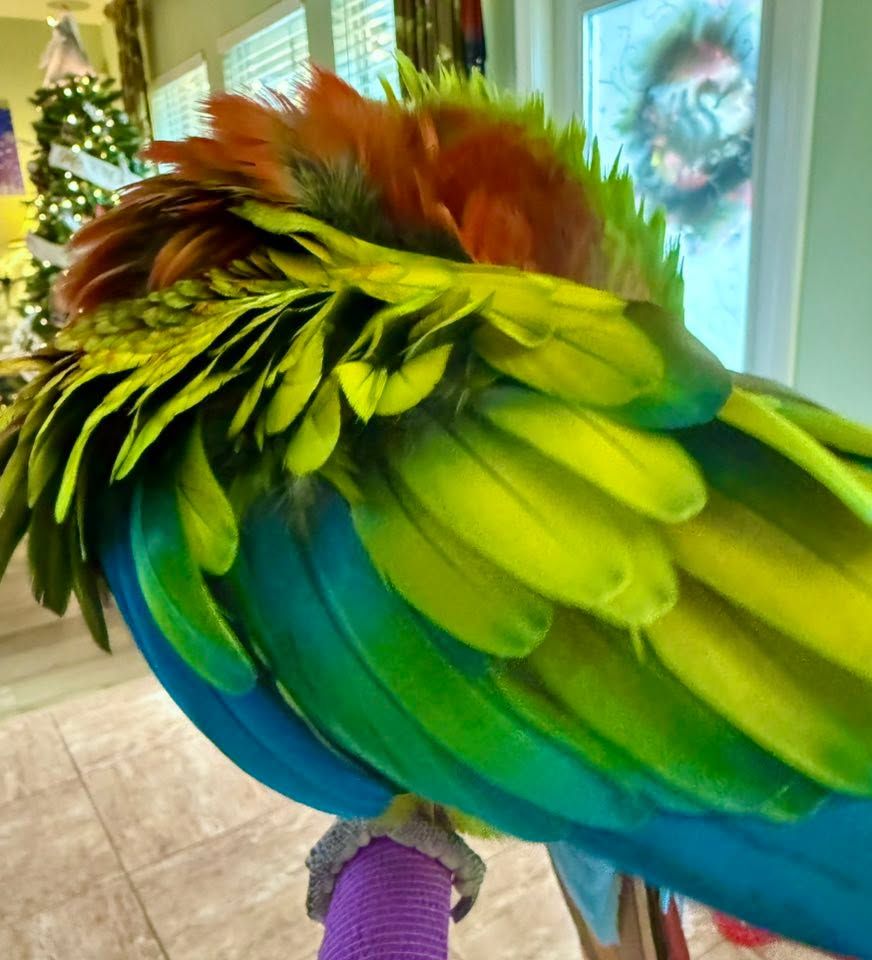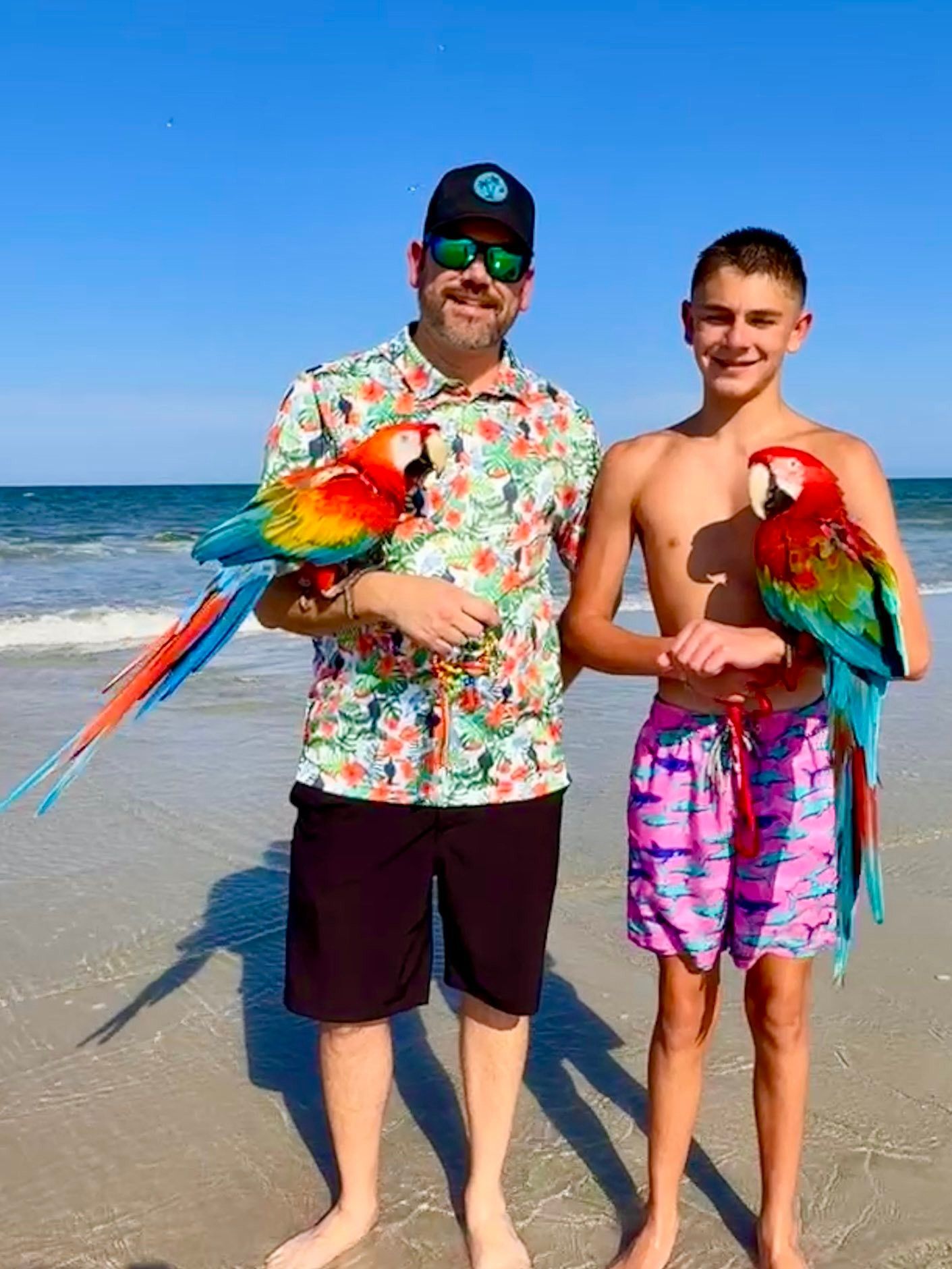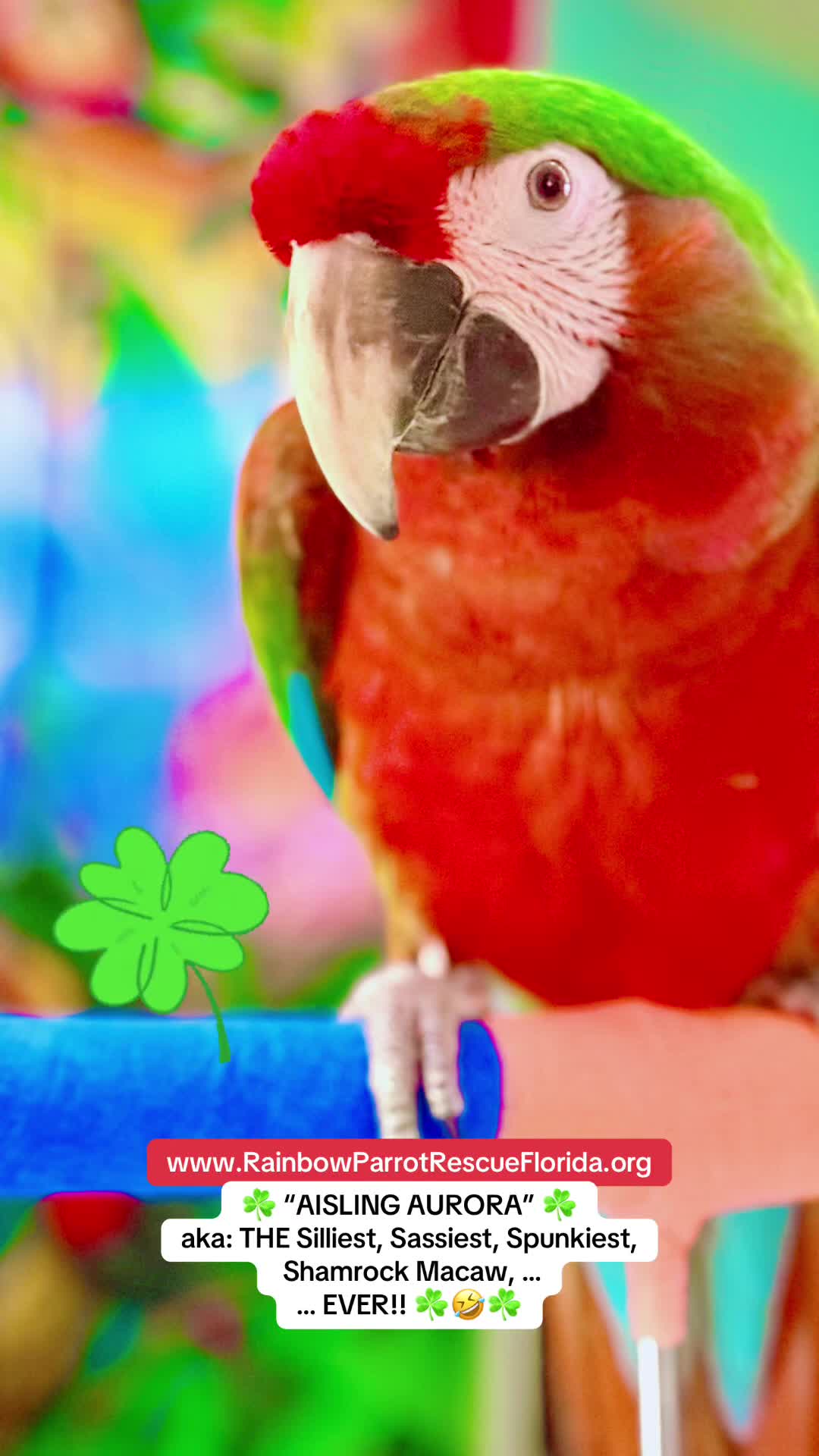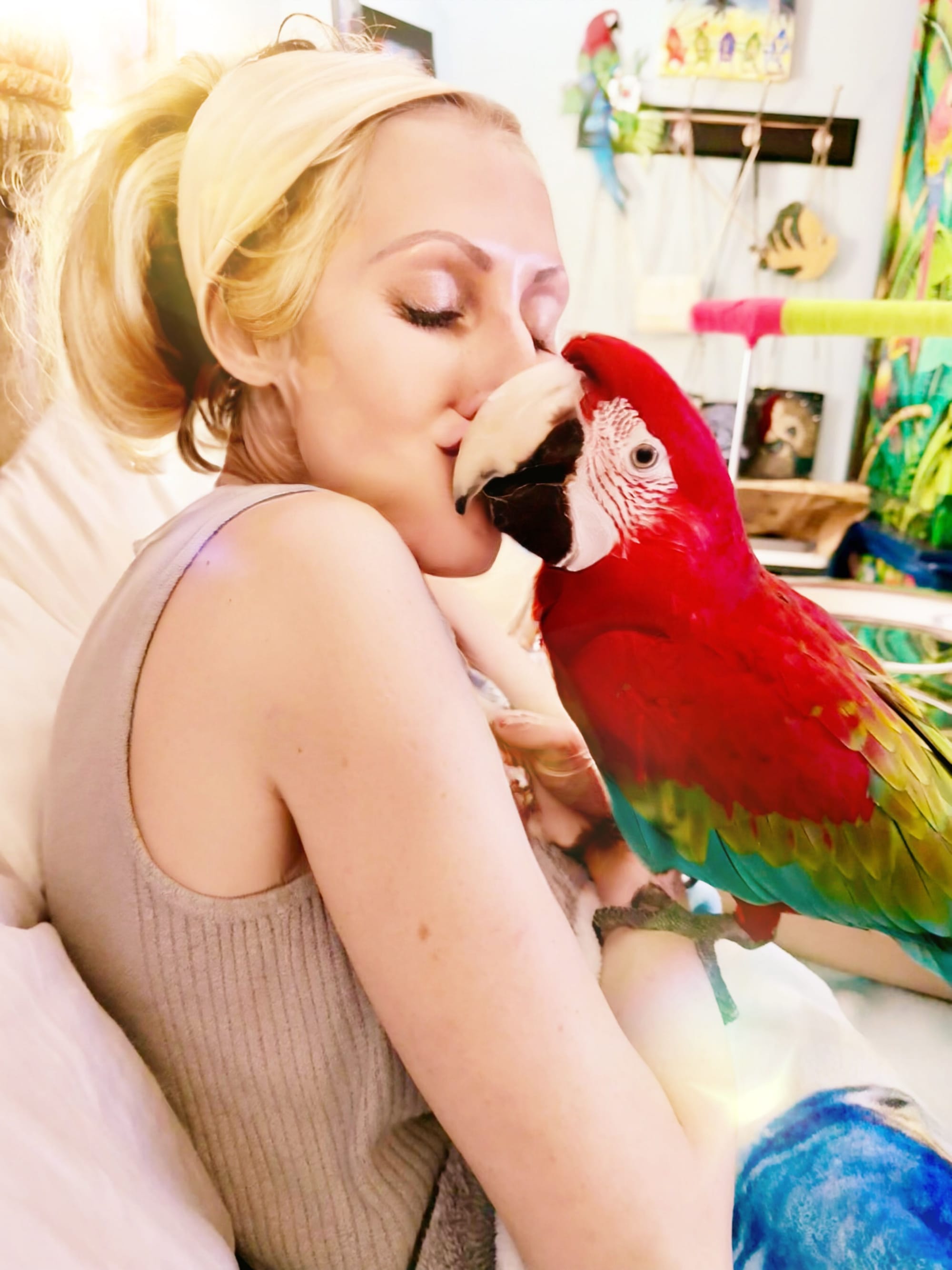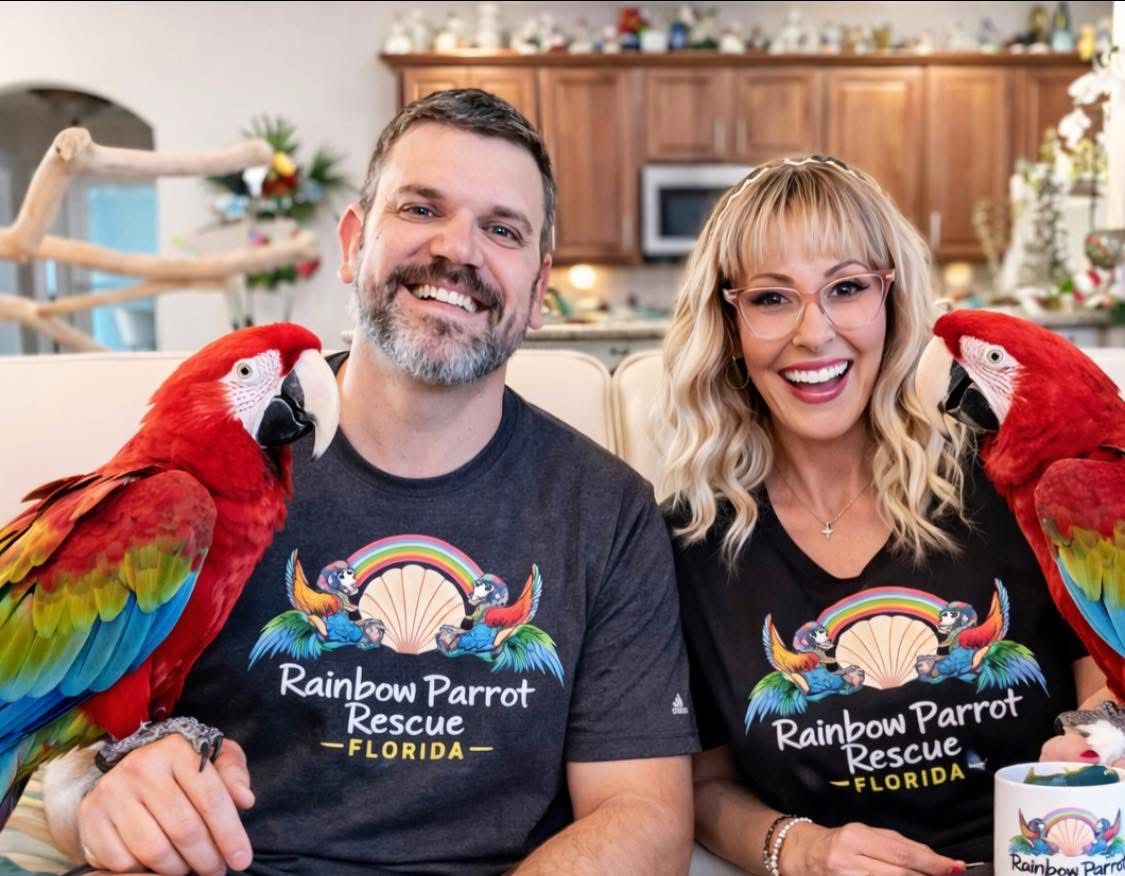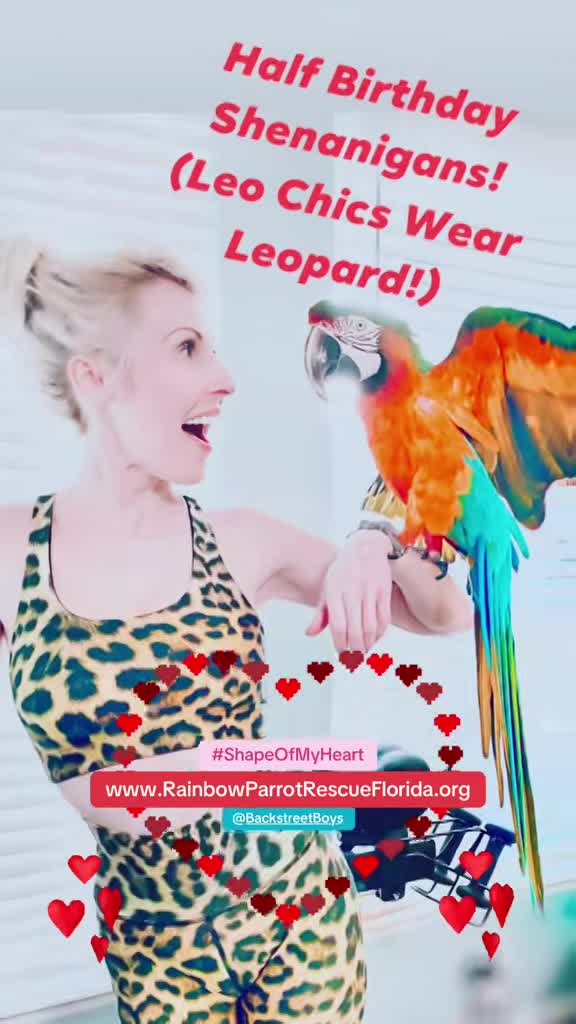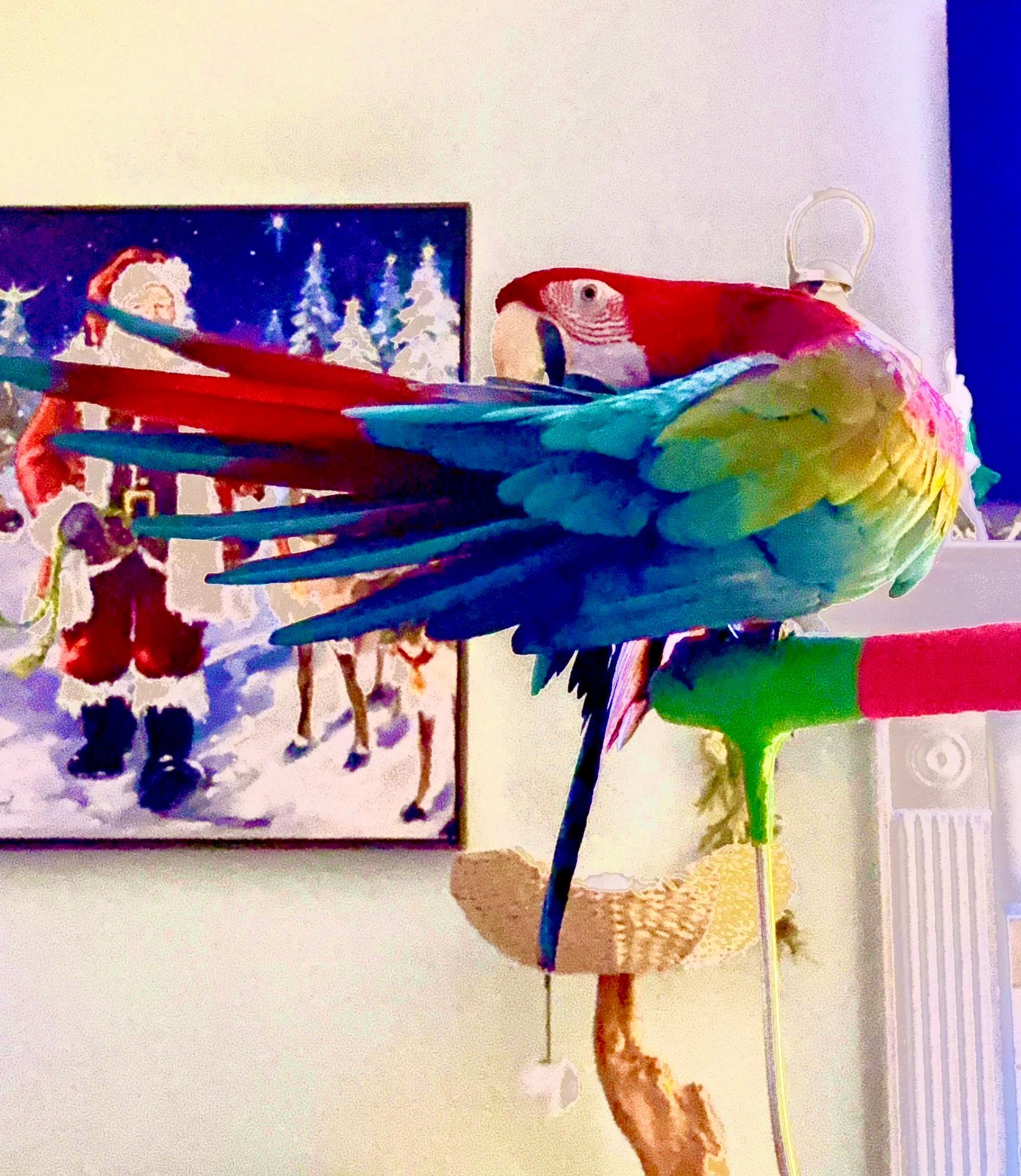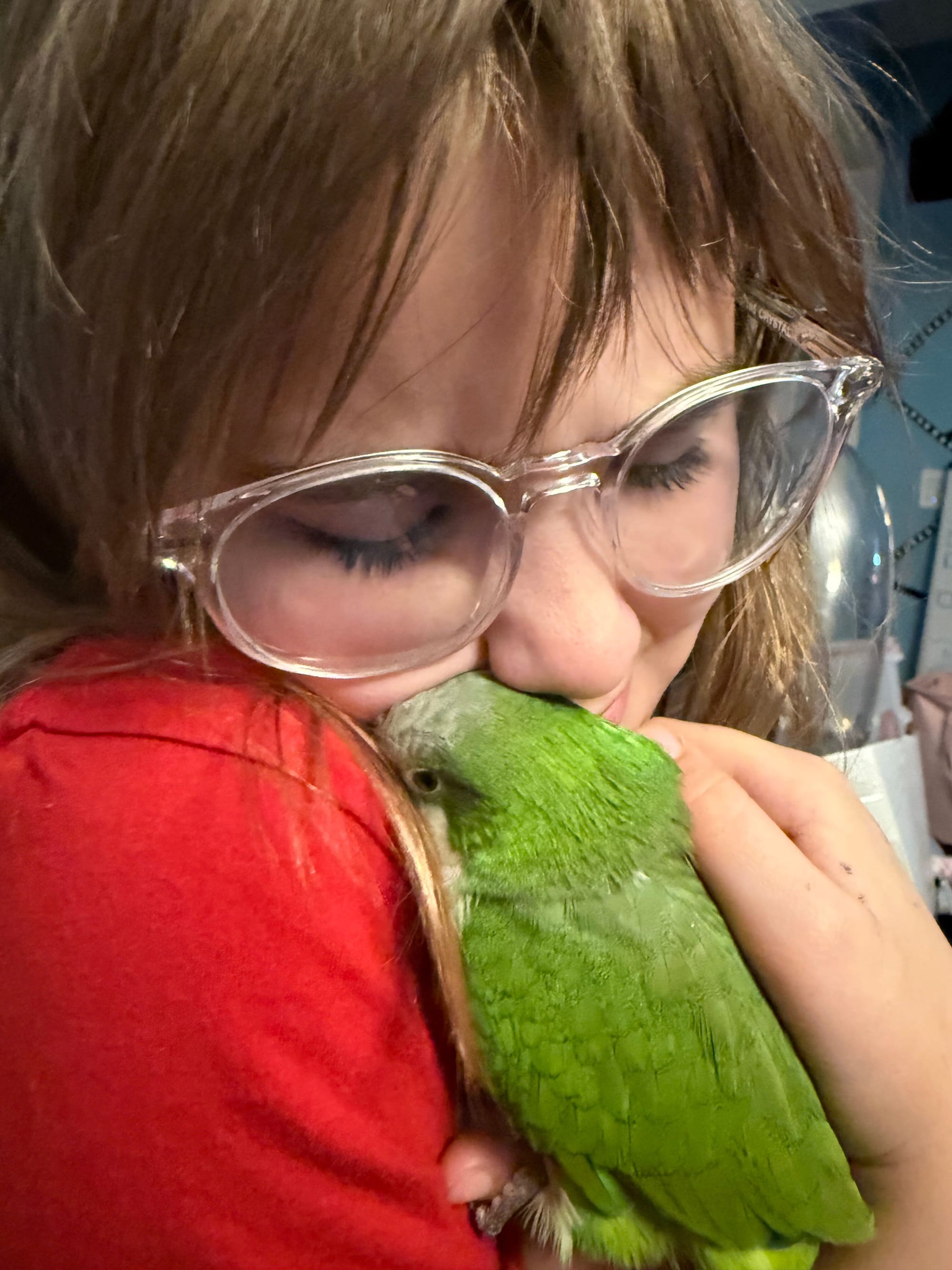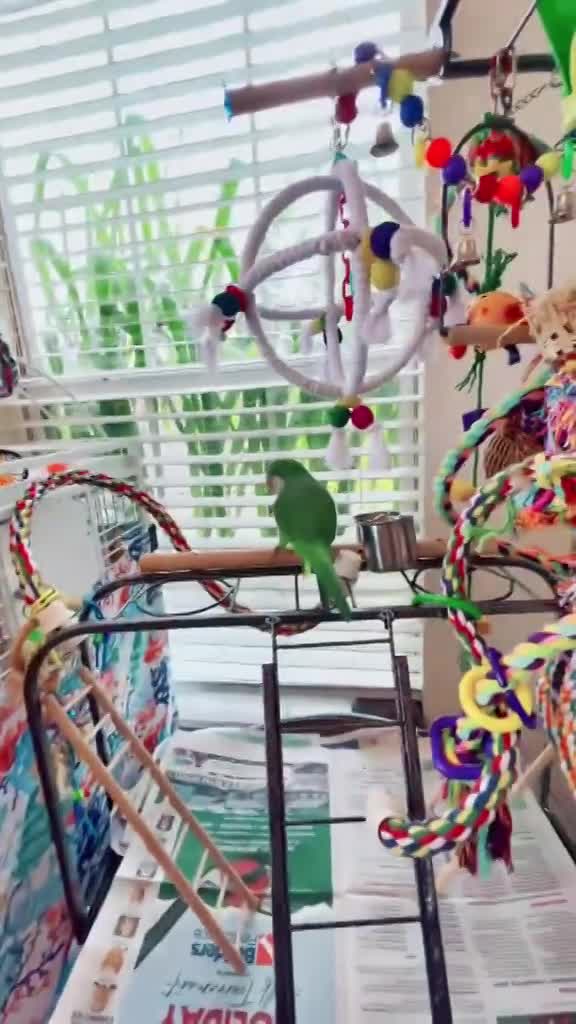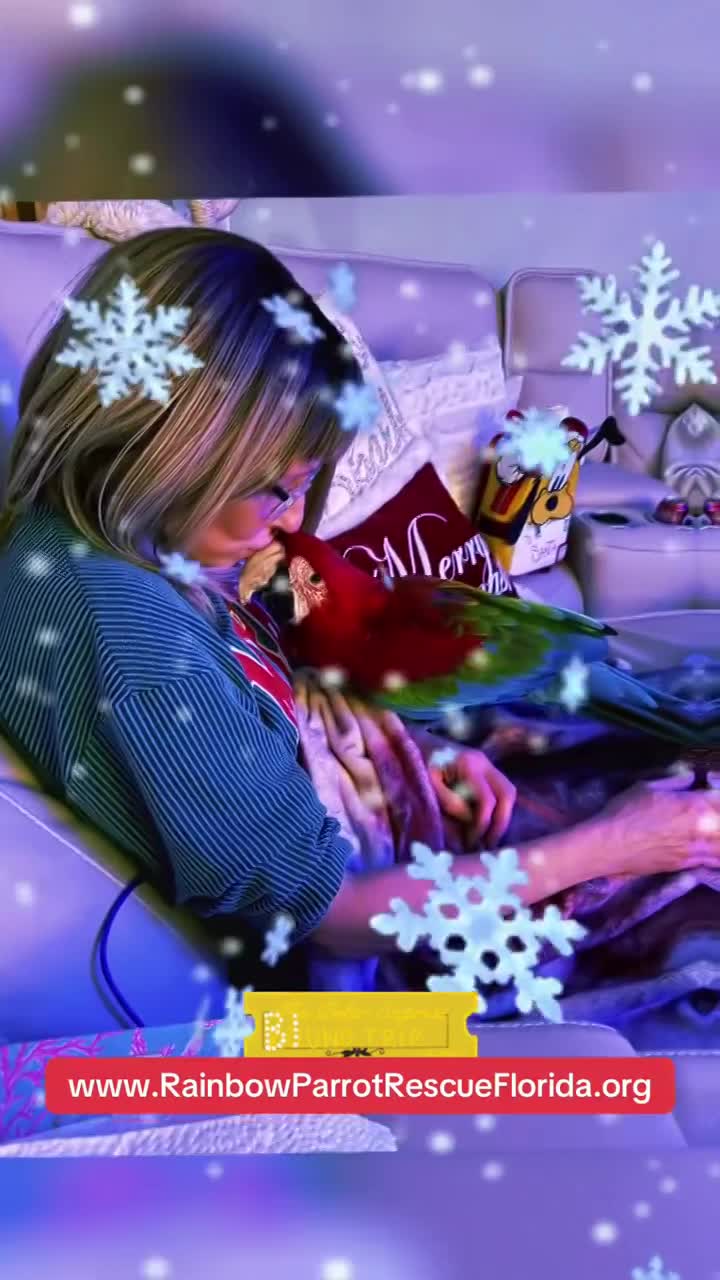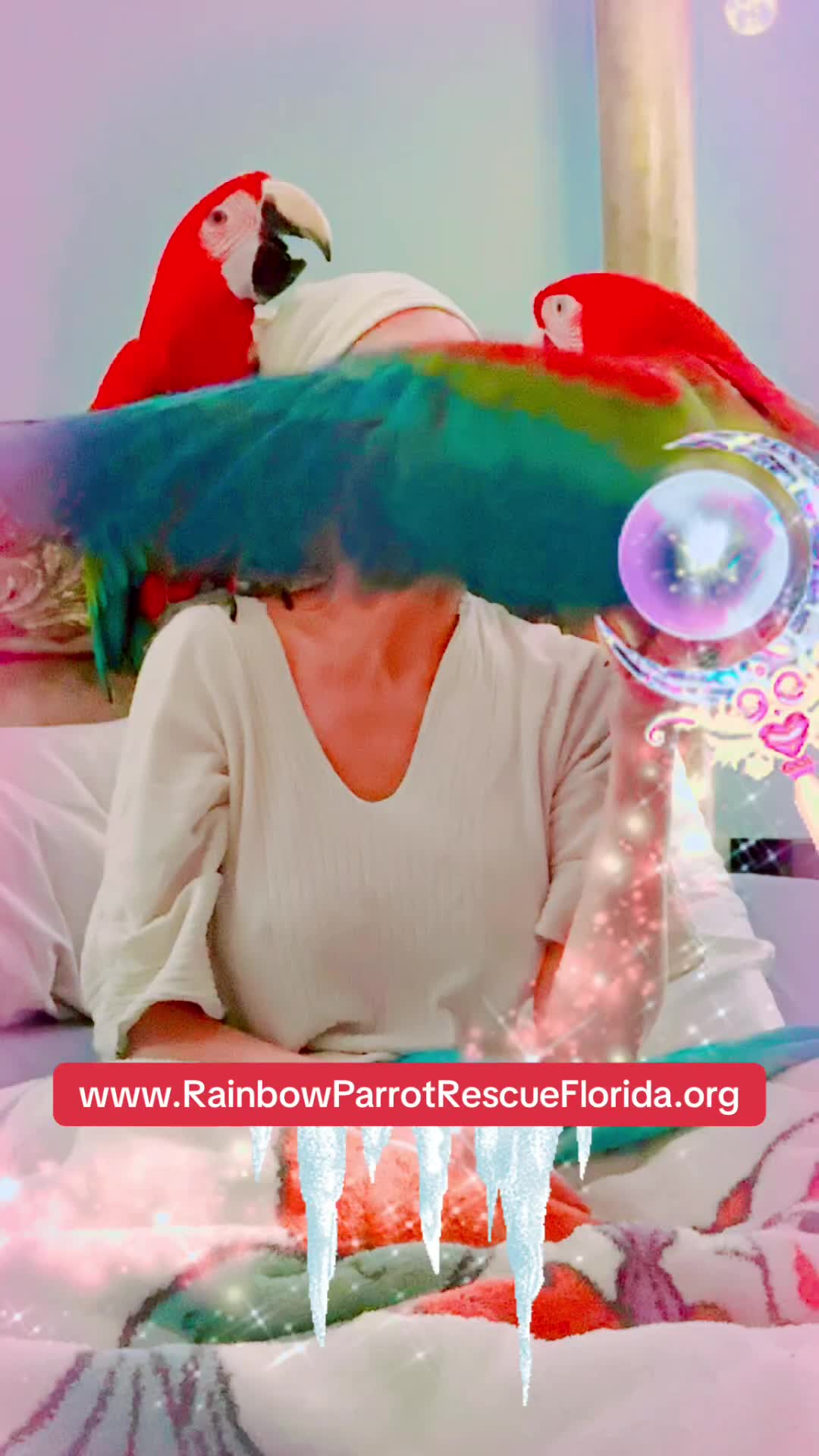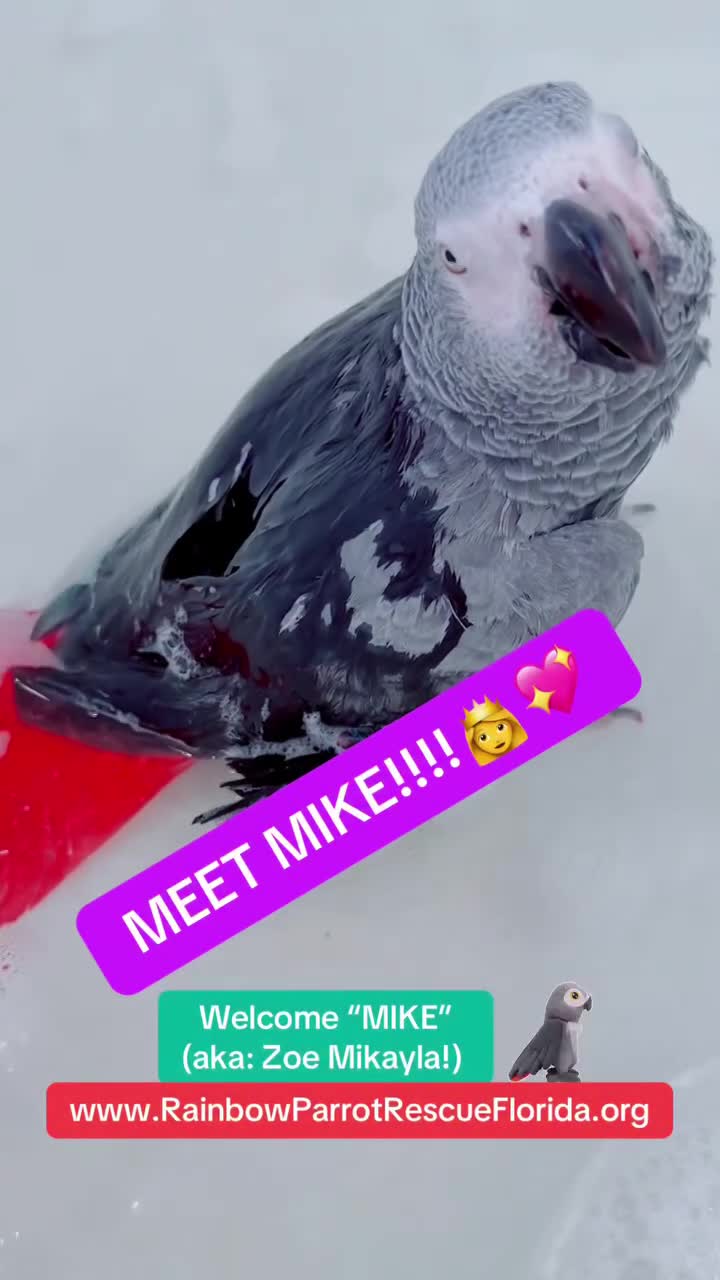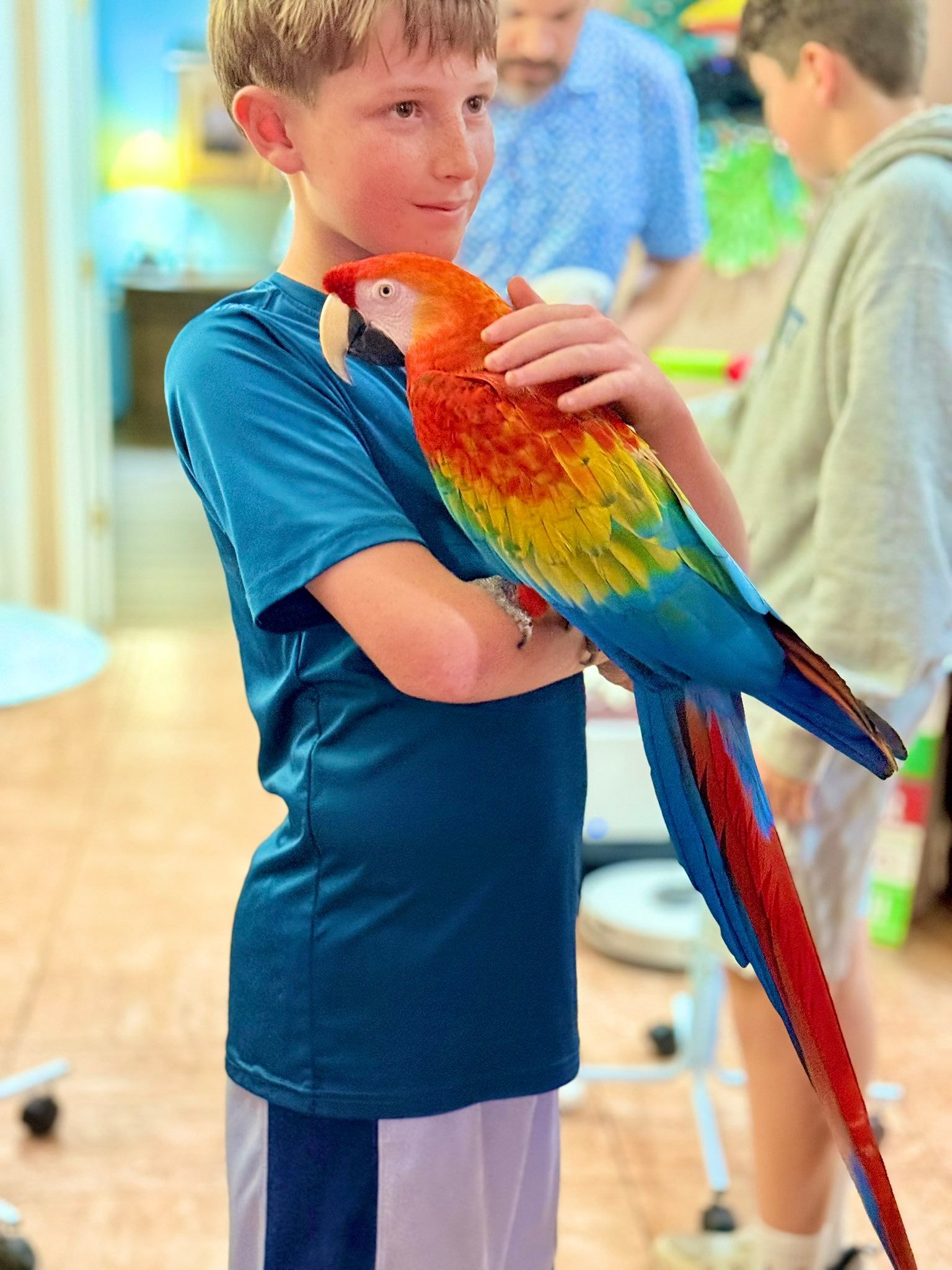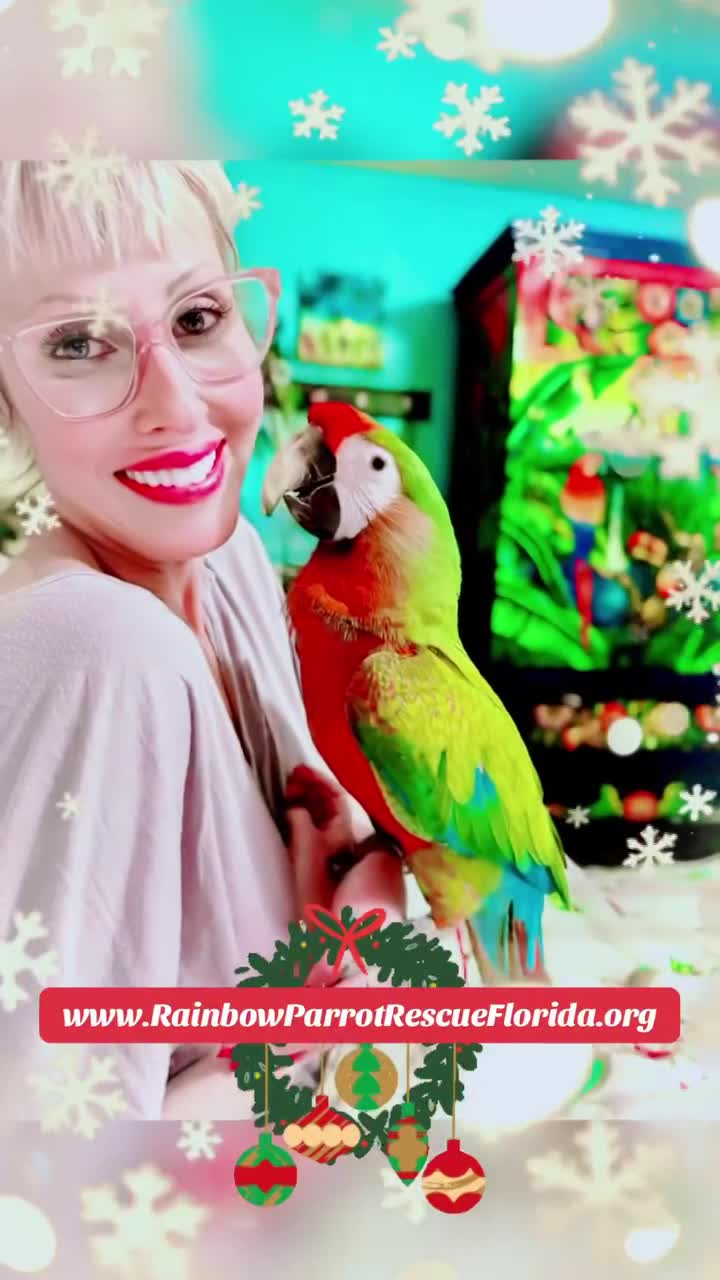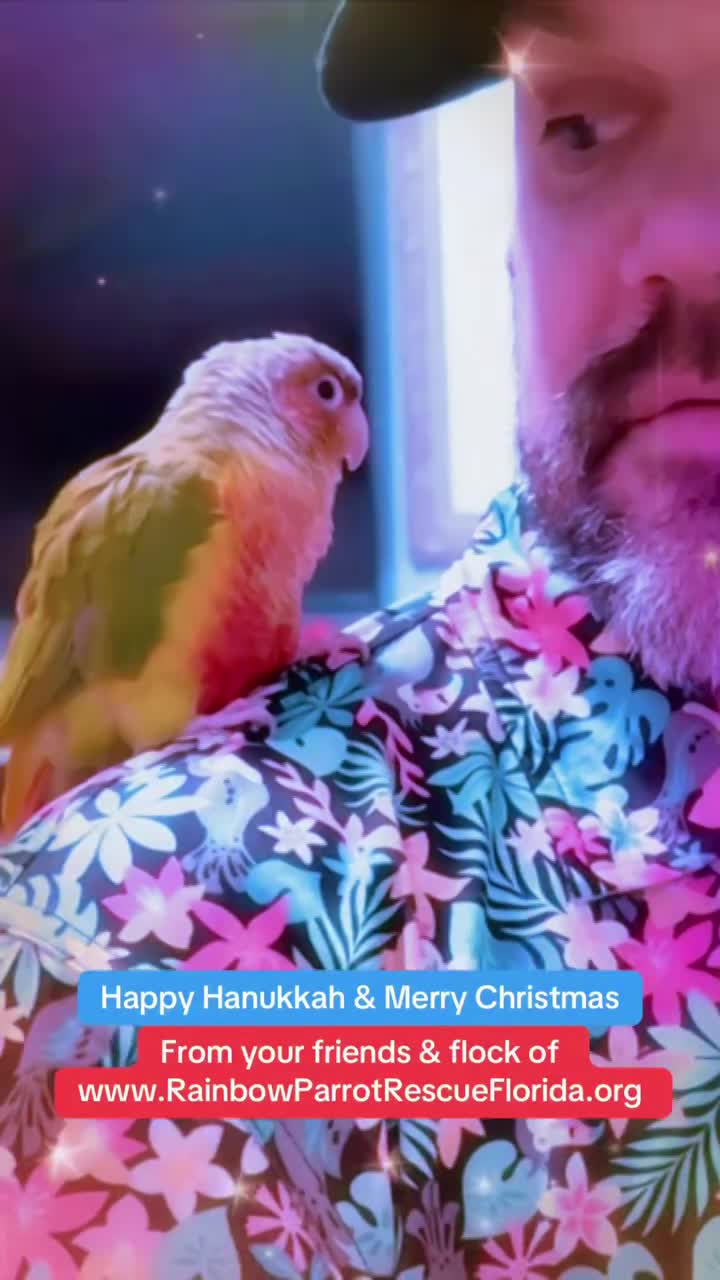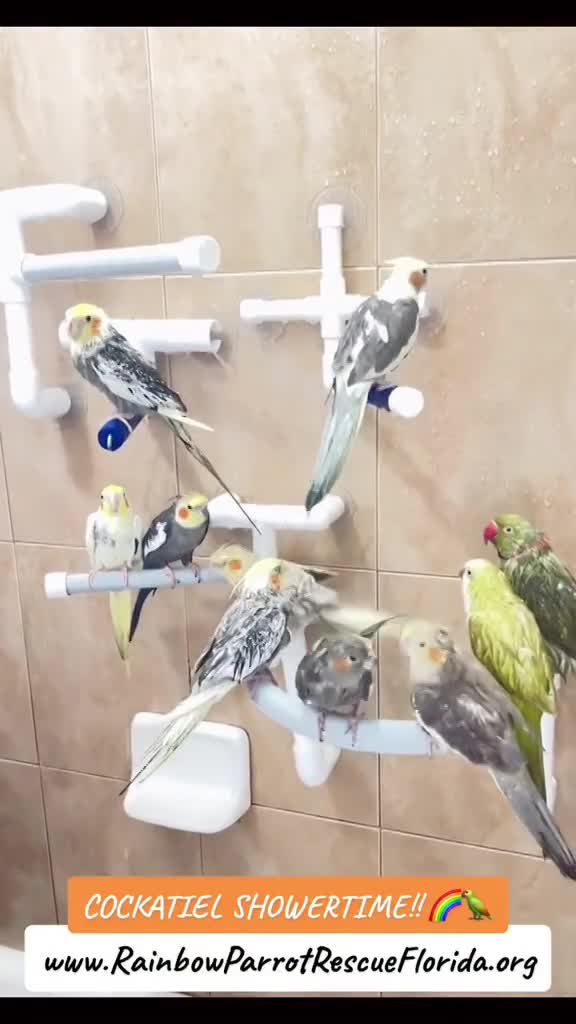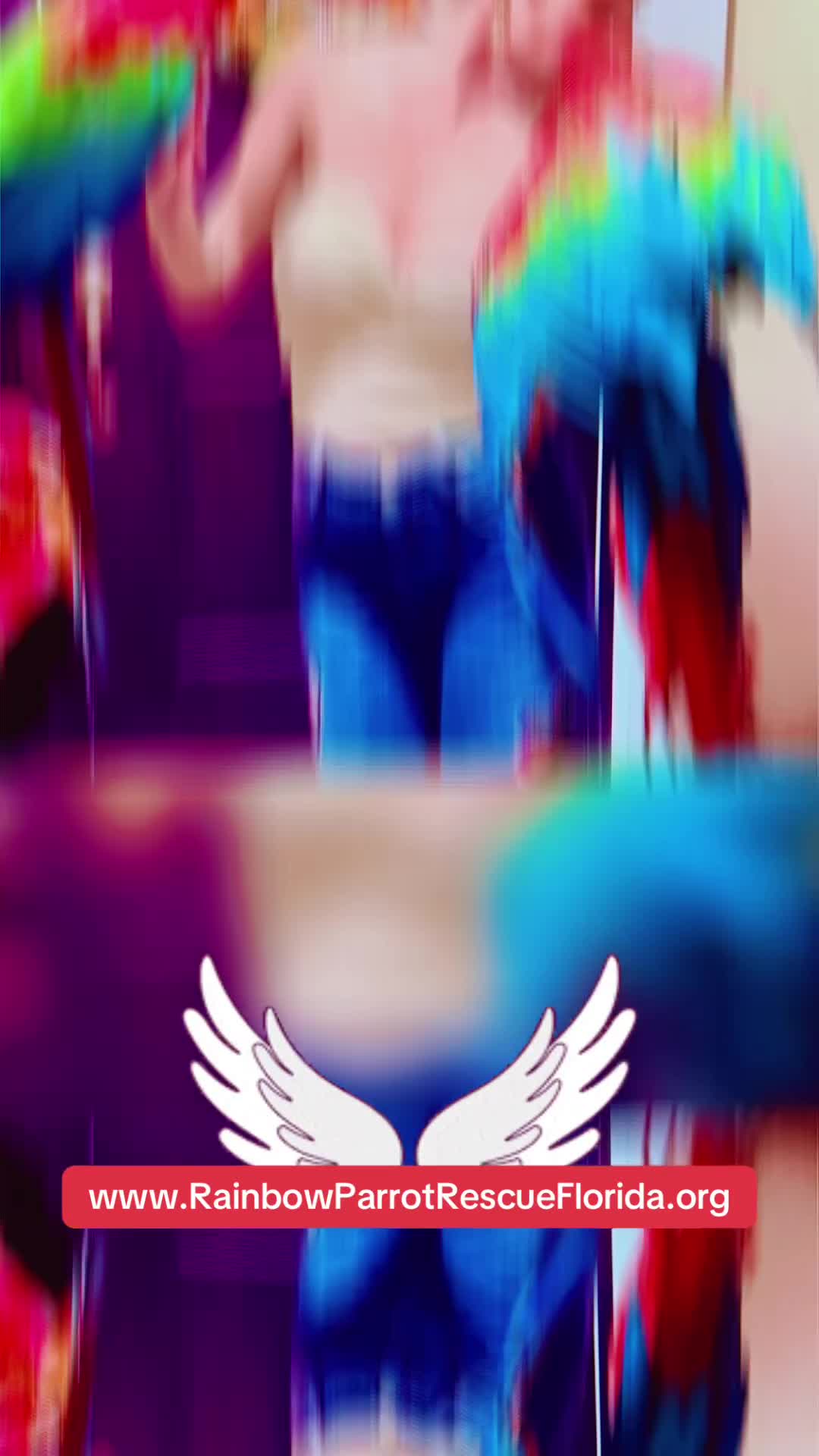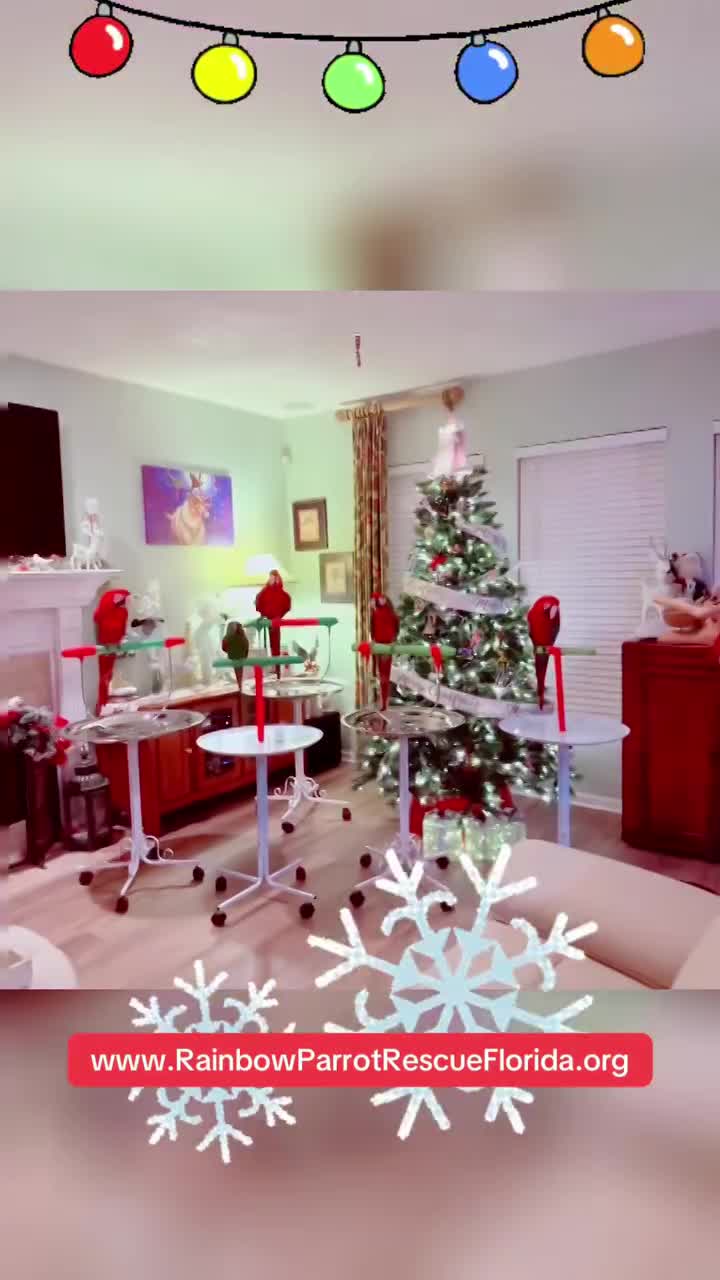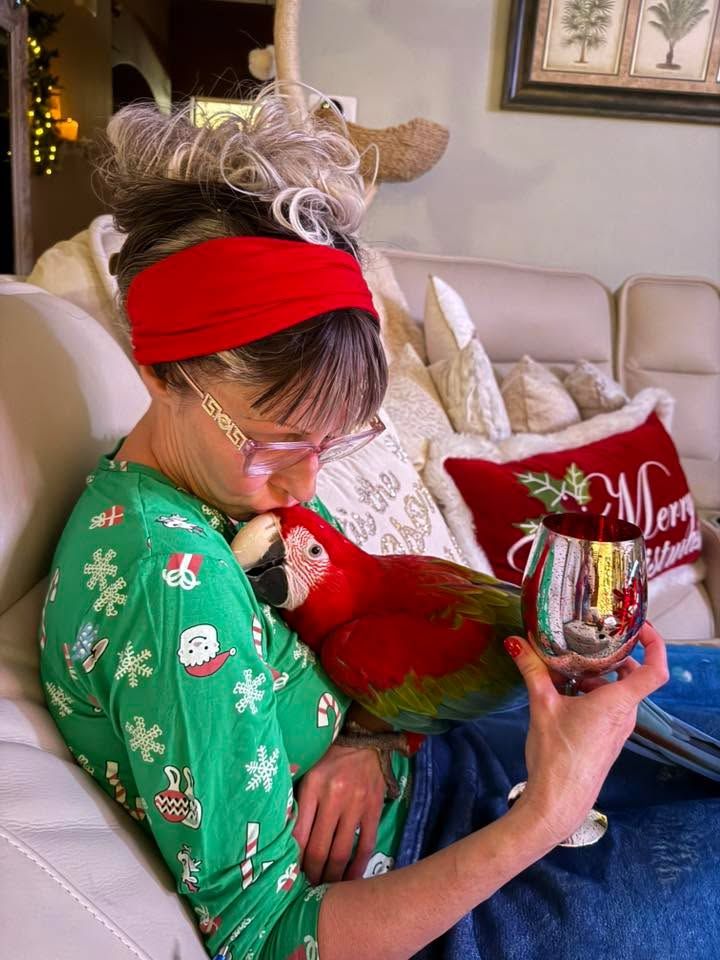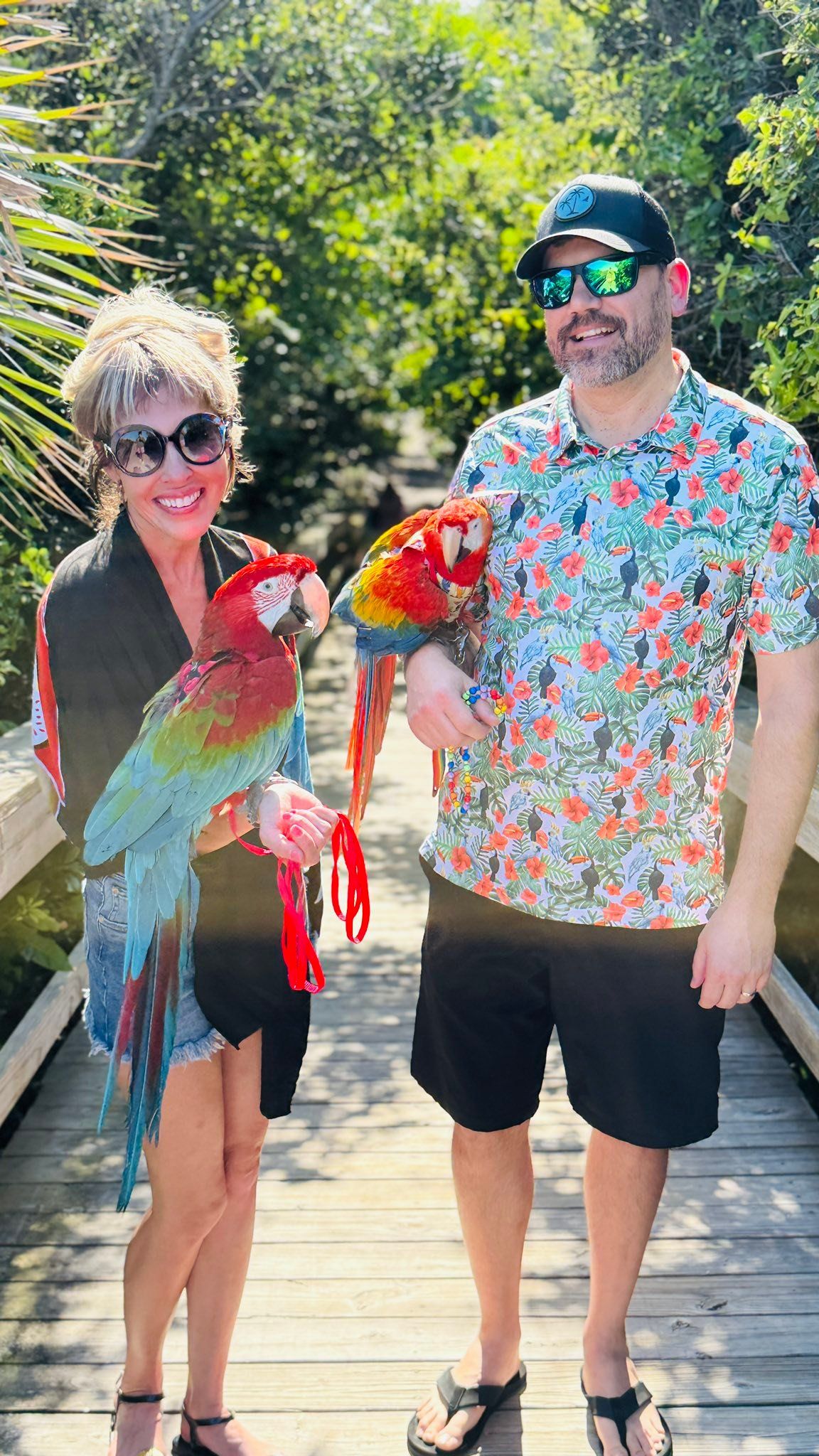Our home, family, & flock ...
We strive to be Florida's premier parrot, toucan, & flamingo, nonprofit resource, and we're here to help all those we can! From rescue, to training, education, & our intimate, enriching, family environment, we take the time to help owners, zoo's, & many other rescues, make the very best decisions for their parrots, toucans, & flamingos. Our family of four is home 24/7 to work with our birds. We do more than just rescue; we take them in as pets, make sure their healthy, & go a step beyond in behavior training with love, compassion, & over 40 years of knowledge.
EIN# 87-3407588.
***WE ARE A PRIVATE HOME, AND NOT A PUBLIC FACILITY.***
(NOTE: WE ARE NOT A WILDLIFE OR WILD BIRD RESCUE! Please ONLY contact Florida Fish & Wildlife for all wild birds. FOR YOUR SAFETY, & PUBLIC HEALTH, NEVER TOUCH, HANDLE, OR PICK ANY UP WILD BIRDS! THEY CAN SPREAD DISEASES TO HUMANS; INCLUDING CHLAMYDIA PASSED THROUGH THE AIR. THE CDC AND HEALTH DEPARTMENT WILL HAVE TO BE NOTIFIED, & IT BECOMES A PUBLIC HEALTH CONCERN. IT IS ALSO ILLEGAL. THANK YOU.
(The only wild birds we will assist with are flamingos, and the only extreme exotics are toucans.)
*********************
CERTIFICATIONS/LICENSES:
*Florida Department of of Agriculture and Consumer Services: "The Solicitation of Contributions Act," Certified.*
*Permit to Possess/Exhibit/Class III Wildlife for Commercial Use (ESC) via Florida Fish Wildlife Conservation Commission
**********************
BE SURE TO CLICK ON THE, "OUR FLOCK: BEHIND THE SCENES," LINK FOR OVER 3000 VIDEOS & PHOTOS OF OUR HOME & BIRDS THROUGHOUT THE YEARS!
*********************
Rainbow Parrot Rescue Florida, Inc., holds a 501(c)(3), NonProfit status, and we are located in Jacksonville, Florida; serving everyone we can!
***************************
WHAT WE OFFER.....
*Rescue, and assistance with rehoming, & personal surrenders.
*Assistance to zoos, & other animal organizations, with training, or surrendering their parrots, toucans and/or flamingos.
*Sanctuary Living for Exhibition Birds.
*Adoptionsfor Parrots Only -- Please donate a minimum of $25 for an application to be sent, prior to requesting an application. (Otherwise, you will not recieve an application.) (More details regarding this below.)
*Behavior Training
*Educational Classes In Person & Virtually
*Educational Experiences with our Parrots.
*Private Educational Family Tours & Experiences
*All our parrots, toucans, and flamingos MUST be health certified and DNA sexed to be in our home. If you haven't done this, we can do this for you. However, we are not state or federally funded because we are an exotics rescue. So, you are responsible for your own vet bills. (This is true for ALL responsible parrot rescues in the country!!)
*******************************************
**AGAIN, be sure to click on the, "Our Flock," (Behind the Scenes,) tab on the left, (or above on your mobile device,) for a full inside look at all the fun activities, training sessions, living areas, enrichment, video montages, and SO much more; ALL here at Rainbow Parrot Rescue Florida!**
************************************************
Our charity is family run, and committed to rescuing parrots, toucans, & flamingos in need. Our goal is to help all people who need our assistance; parrot owners, zoos, shelters, animal services, as well as animal/avian educational organizations, who simply need help with their birds, or want to do more to educate the public about parrots, while being a rescue to all who need our help. We believe we can all learn from each other, and we strive to be the experts others can look to for guidance. (We work with all parrots, toucans, & flamingos, but specialize in macaws.) We provide housing, everyday care, enrichment, behavior training, (rehabilitation when appropriate; we are not a vet,) basic veterinary routine care & bloodwork, when necessary, and rehoming of parrots through adoptions. Each precious parrot, toucan or flamingo, who is surrendered to Rainbow Parrot Rescue Florida, is properly quarantined. We take our time to evaluate each bird's behavior, and do our best to socialize, interact, and train them to the very best of our ability here at Rainbow Parrot Rescue Florida. We have an "open door/open book," policy; which is why you will always be able to see our birds posted on our social media platforms, but our home is private, and reserved for private experiences. All of our birds are kept in extremely clean, fun, healthy, large, rust-free, HEPA filtered, highly air purified, enriching environments, with plenty of toys, exercise, foraging items; and proper experienced training, lots of love, and attention, .... 24/7. Our parrots, toucans, and flamingos, are housed inside, but have a beautiful outdoor aviary with enrichment, toys, multiple perches, auto-misters, and both shaded, and sunny areas they can enjoy under our supervision. Our birds' health is of the utmost importance! Our birds are fed, "Harrison's Bird Foods," and "Mazuri," brands of pellets, along with a fresh daily chop, and only given RO or distilled water once/twice daily. Our toucans are fed Mazuri pellets, fresh fruit, & distilled water only, daily. Everyday we strive to assist all who reach out to us for help. Our mission is; "Saving parrots, toucans, and flamingos, as time flies...(and people too!)" We are always open, and very responsive. We understand everyone has a unique situation, and we do our very best to accommodate, and communicate. Contact us anytime for advice, support, help, or if you know, or have a parrot, flamingo, or toucan in need. We offer care, education, training, foster programs, and even educational experiences in person or online! And, of course, all our birds' habitats are HEPA air filtered, with an ultra clean, enriching, and active environment where they always feel safe, healthy, loved, and happy. We dedicate our lives as a family to understanding these birds, and helping them; along with people, better understand the enormous responsibilities of owning these beautiful creatures in happy, healthy, and proper, living conditions.
If your parrot, toucan, or flamingo, has not been seen by a true avian veterinarian, we recommend, "The Exotic Bird Hospital," (here locally,) in Jacksonville, Florida. ALL PARROTS, TOUCANS, & FLAMINGOS, MUST BE SEEN BY AN AVIAN VET. Just like any responsible pet owner, YOU are responsible for your own pet's vet bills.
Our home based rescue and sanctuary runs on your donations, and we simply could not do this without your generousity!
***Consider donating, or sponsoring a parrot, toucan, or flamingo today! We will post our birds to sponsor coming soon!!***
We strive to always be your leading, 501(c)(3), parrot, toucan, & flamingo, rescue, sanctuary and educational organization, in the state of Florida, and beyond!
Thanks again for reaching out to Rainbow Parrot Rescue Florida. Our family is here to help you, as well as all our flighted friends, through unconditional love, education, proper veterinary care, exquisite living conditions, and your continued community support. We are a rescue and sanctuary who supports educated breeders, and the conservation of all parrot and toucan species. We believe the more educated we are, the more we can all work together as breeders, private pet owners, zoos, shelters, animals services, and rescues, to create a beautiful environment for these creatures to thrive, as they teach us more about their many mysteries! We hope you join our mission, joy, and love for God's beautiful winged creatures! Our family of four is home 24/7, and always hear to help you, and your birds. From our local shelters, private owners, to zoos across the nation; our "flock," is here for you!
(PLEASE NOTE: WE ARE NOT A VET, OR A REHAB CENTER, NOR ARE WE RESPONSIBLE FOR YOUR PET'S VETERINARY BILLS/CARE. EXOTIC RESCUES ARE NOT FEDERALLY OR STATE FUNDED. Exotics are generally much more expensive to vet than domesticated pets.) Please do your research before owning a parrot, and please do not ever try to own a toucan or flamingo. From a Budgie, to a Macaw, and everything in between, they all require the same bloodwork.)
Sincerely, The Sullivan Family; Daniel & Beth Sullivan, & our boys, Aedan & Rylan.
*********************************************************************
🌈🦜 PLEASE READ!! 👇🏽
••• We PRIDE ourselves, and our 501(c)(3) status, in being the very best we can be; always. We adopt birds out who are health checked, usually microchipped, (when appropriate,) socialized, fed impeccable diets, rehabbed, & behavior trained to the VERY best of our professional knowledge, abilities, and efforts. We are not bird hoarders, breeders, nor one of the many fake nonprofits without an IRS status. We do not work with bullies, scammers, or people within the trafficking of exotics. We are not flippers, boarders, or a store front for birds. We have a proper quarantine area, and all our birds are in the very best living environments, with heavily purified air, and deemed healthy before they are ever put up for adoption, or enter our sanctuary before adoptions take place. When you adopt a bird from us, please know, that under most circumstances, you are getting one with all the responsibilities, & expenses you would normally have when getting a new bird, but instead we have done them for you and saved you money! We are a full working, completely family run, honest, kind, hard-working, nonprofit, & we can’t do what we do without your donations. Please understand that taking care of an exotic parrot can cost hundreds of dollars a month. Never let a donation cost to charity be your deciding factor. Please do your research before ever owning one.
THANK YOU!! 🌈🦜
*************************************
ADOPTION PROCESS: (This is repeated multiple times throughout our website.)
PLEASE START BY PAYING YOUR MINIMUM $25 APPLICATION FEE/DONATION. ONCE YOU'VE PAID THE MINIMUM OF $25 FEE/DONATION, YOU MAY THEN REQUEST AN APPLICATION FROM THIS WEBSITE, AND WE WILL SEND YOU ONE IMMEDIATELY TO FILL OUT AND EMAIL BACK. ABSOLUTELY NO CALLS, OR TEXTS ABOUT ADOPTIONS. (Only call or text us about surrenders. All other inquiries must be emailed.)
APPLICATIONS: In order to apply to adopt one of our parrots, (and be placed on our waiting list,) there is a minimum $25 application donation fee. All donations, and this minimum $25 application fee, can be made right here through this website, (which could take up to two weeks to process,) or you can Zelle to Beth Sullivan, 904-775-1211, or Venmo @rainbowparrotrescueflorida for your application request to be received immediately. We will email you an application, as soon as your donation is made. We do request you fill out your application, and send it back within 24 hours of receiving it. Please do not request an application if you have not paid the $25 fee.
********************************
PARROTS AVAILABLE FOR ADOPTION: (UPDATED Feb. 28th, 2026)
1 Common Grey Cockatiel, DNA'd Male, Health Certified, 4 years old
IMPORTANT: DON'T FORGET, BE SURE TO PAY YOUR $25 APPLICATION FEE TO GET ON OUR WAITING LIST! JUST BECAUSE YOU DON'T SEE A PARROT AVAILABLE NOW, DOESN'T MEAN YOU SHOULDN'T APPLY! STAY AHEAD BY GETTING YOUR APPLICATION IN NOW TO BE ON OUR WAITING LIST FOR ALL PARROTS!!!!
**********************************************************
PLEASE READ OUR PARROT 101 RULES & FAQ'S BEFORE APPLYING!!!
(Each parrot has a minimum adoption fee. Only those who have properly requested, filled out, sent back, and are called because they are a match, will be notified of that minimum donation. All donations will be tax deductible.)
(PLEASE NOTE ON YOUR APPLICATION, WHICH PARROT, OR TYPE OF PARROT, YOU ARE INTERESTED IN. EVEN IF AN ADOPTION IS PENDING, YOU CAN STILL APPLY.)
DO NOT REQUEST AN APPLICATION WITHOUT PAYING YOUR APPLICATION FEE.
Most of our available parrots are vetted, DNA sexed, de-banded, extensively behavior trained, & socialized with people, pets, and children, and most are microchipped. (Each is an individual. We will only call you if you are the right fit for one of these birds.) All our birds come with a Health Certificate, and proof of DNA sexing. Please send in your completed application. We will only call if you are a fit. Again, you must request an application from this website. We will respond with an attached application you will need to fill out completely, and email back to us promptly.
We have a minimum donation requirement to adopt each parrot, & we will let you know the donation IF, AND ONLY IF, you’re a fit. We will ONLY call those who have paid their application fee, filled out their application, sent their application back promptly, & are a fit! So, get your applications over NOW! ❤️ No additional information, or photos will be given. We will only call those who we believe to be a fit. We do not allow, "store browsing." We are not a store, and that is not how our operation runs. We do not allow you our parrots to be, "window shopped," or "browsed." Please don't ask.
As we mentioned, there is a minimum adoption donation, (which varies,) for each parrot being adopted, based on the work, veterinary care, grooming, bloodwork, microchipping, and training/socialization involved. Again, please email us directly from this website to request an application. Do not ask us for a, "talking bird." You will be immediately disqualified. If you don't know why, than please research. Please do your research before asking for any specific type of parrot, or any exotic pet. Parrots are a huge commitment, and require more attention, and more veterinary care and costs than domestic pets.
***********************************
FAQ'S -- PLEASE READ:
1.) We are a rescue first, and foremost. We also help parrot owners who need help rehoming, and we rehome "sanctuary/home" parrots as necessary, or if, and only if, the circumstance is appropriate. We bring in every parrot as a, "pet" first. We treat them as part of our family, and over time, we make the best decision for them, as possible.
2.) We are not a store front, nor do we breed birds. All photos of our home sanctuary are posted all over social media. The only tours we allow are for those people surrendering parrots, or anyone we have called to adopt a parrot. We do not allow people to browse our home, or "window shop," our birds, so please don't ask. Tours, or parties are not available at this time, but are something we are working on for the future.
NOTE: Our address is private, and only given to those surrendering or adopting a parrot. We are located in Jacksonville, Florida.
3.) We rarely post our birds up for adoption. Just because you see a photo of a parrot on this website or any of our many social media platforms, does not mean it is up for adoption. In order to adopt, you must request an application, and we will send you one to fill out. Be sure to fill it out completely, and email it back to us promptly to get on our waiting list. We only call those who are a fit, and have filled out an application thoroughly, and are on our waiting list. (Please note if you are a regular donor, volunteer, or foster, at the top of your application!)
4.) Do not call asking what parrots we have up for adoption. Please read this website thoroughly to understand our proven process. Please remember; we are a sanctuary first and foremost, and we are here to help as many owners as we are able. Our phone number is for surrenders only.
5.) Surrendered birds should ideally be up-to-date on vet visits, and/or bloodwork, to be able to come to Rainbow Parrot Rescue Florida. Preferably all vet visits should be current before surrendering your parrot. We are not veterinarians, and do not do extensive rehab on parrots. We will do some helpful behavior training/tips, but cannot take in sick, injured, nicotine addicted, or unhealthy birds without donations to do so, (and we must assess the situation first.) Proof of a negative Polyomavirus, Avian Psittacosis, (Chlaymdia,) Feather and Beak Disease, DNA sexing, fecal tests, and for larger parrots, microchipping, are imperative; (preferably within the year for the disease testings.) (Grooming does not count for proof of full veterinary care, but we do need to see any and all visits made.) If these are not done, we can get them done for you, or can get some of them done for you. Just ask us how.
All donations are non-refundable, and non-returnable, but fully tax deductible. A tax deductible receipt will be given to you for your donation(s); (for "financial," and "items" donated.)
***********************************
PLEASE READ BEFORE REQUESTING AN APPLICATION TO ADOPT, & ALWAYS BE SURE TO EDUCATE YOURSELF BEFORE APPLYING.
What are the biggest parrot, "No No's," & some basic tips for parrot owners who want “PETS”? Here's a list to help you! ("Parrot Basics, 101")
1.) Before ever getting a parrot, you must ask a very basic, general question; “Am I usually home between 10am and 2om every day?” If so, you can generally learn to care for a parrot and keep it as a non-aggressive pet. There is a lot more to this general rule that we go over in our parrot educational classes! Be sure to ask us how to join!!
2.) It's the number one most common misconception, but a parrot should never be allowed on your shoulder; (especially larger birds!!) At least not for a VERY long time!!! Extensive behavior training must be done, and all household members must understand how to be a “Flock Leader,” and not a “mate,” or a “mother.” This can take many years in most cases, and is generally never “ok,” on a normal basis. (It should never be a taught behavior.”
3.) Unless you are a breeder, a parrot should never have access to a mirror, box, snuggle nest, tent, or any type of "nesty" type toys. This will cause hormonal behaviors, and can lead to aggression.
4.) Parrots should NEVER have seeds as part of their regular diet. A small percentage is ok, and seeds can be used for training. But, are not a staple; (no matter what pet stores may tell you.) Make sure your parrot is eating a well-balanced, naturally colored, pelleted diet, (like Harrison's, Roudybush, or Mazuri pellets,) as it's staple pelleted diet, along with fresh veggies! (Stay away from sugary or fruity pellets, and fruits should only be an occasional treat.) Never give your parrots sunflower seeds or peanuts; especially! They’re ok as a treat, or incentive to clicker training, but otherwise, stay away from them. Pistachios, almonds, or walnuts make a great alternative! Seed rehabs are one of the most common issues found at rescues, and one of the major causes for aggressive behavior.
5.) Teflon cooking products, (i.e. non-stick cooking products,) as well as candles, plug-ins, cigarettes, or smoke of any kind, should never be used around parrots. It will absolutely lead to their death, even if not in the same room.
6.) Although free-flying a parrot is beautiful and natural, it is a better idea to keep them safe until they understand you as a “FLOCK LEADER,” and their environment. Also, it's best to make sure you are trained in teaching free-flight to your parrot so they return safely. This is a basic rule if you prefer to have a "pet," over a wild animal who can easily become aggressive, or dominate in your household.
7.) Your parrot should be taken to a veterinarian just like your normal domestic pets. Make sure you have a licensed avian vet around you before considering a pet parrot. Avian vets are not common, but many diseases carried by birds can be transmitted to other birds, as well as people, (like Chlamydia!) That is why all parrots must be quarantined when going into a new environment with other birds.
8.) Do not ever find a parrot being sold for money without the proper veterinary care proof, or Health Certificate. Parrots carry people diseases, and must be tested for Avian Psittacosis, (aka; Chlamydia,) as well as Polyomavirus, and Feather and Beak disease, a recent fecal, proof of DNA sexing, and preferably de-banded, and microchipped. Do not purchase, or give anyone money without some form of that parrot’s health verification. People selling birds for profit are flipping birds, and not putting their health, the birds’ health, or YOUR health above all things. Please note this is a giant red flag. So, find a seller, or rescue, or breeder who is willing to give you all the proper health information before every giving them money. Otherwise, the parrot should not be sold for money, because you will be putting potentially thousands of dollars into veterinary care, and you also must have a proper quarantine set up. This is overlooked by so many, but truly one of THE most important things to remember.
9.) Parrots need regular beak, and nail trims every 4-8 weeks. -- Rainbow Parrot Rescue Florida provides this service for a donation to birds who have been properly vetted, or birds who have been adopted from us! Email us for details!
10.) Parrots NEED 15 hours of BLACKOUT covered darkness every single night. (Sometimes 17 hours of blackout darkness in the Springtime! (Cockatiels need a partial cover, and/or a nightlight due to common night terrors.) Otherwise, this is very important to keep your bird less hormonal, less aggressive, happier, and an overall, better pet. Parrots should NEVER see 5pm, or later, for instinctual reasons. To make a “captive” parrot feel safe, they need to feel comforted. (12 hours of covered darkness is for wild parrots; not ones we are attempting to tame as “pets.”) Cover your parrots by 4:30pm every single day. (Cockatiels need a partial cover and/or nightlight because they are prone to night terrors.)
11.) Parrots need RO or filtered drinking water ONLY. (Some bottled water is ok.) Never give your parrot tap water. Unfortunately, we will never have access to the amazing water they drink in the rainforests naturally. So, please do your research, and never, ever give them tap water.
12.) Parrots need a variety of perches, toys, java trees, and loads of daily interaction with their humans! This is why it is difficult, (and typically not ideal,) for someone to own a parrot who doesn't work from their home office. Your parrot should be covered BEFORE 5pm every night, and needs 15-17 hours of covered darkness. This will help with aggression, hormones, health, and make them a better overall pet! Another reason to ask yourself if you are available during 10am-2pm most every day. These are the main hours they need full interaction, playtime, and exercise.
13.) ROUTINE IS KEY. We all have busy lives, and, yes, our routines change sometimes. But, doing your best to keep your parrot on a daily routine will also help keep them happy, healthy, and friendly! If your parrot is on a normal routine, and you have to change it here and there, it will be much easier to do so if they are happy, rested, and feel safe normally.
14.) If your parrot is banded, please take it to a licensed veterinarian to have it removed, immediately. Bands are breeder bands, and mean nothing to the owner, and can only cause harm to your parrot. They are not used in any form of ID, unless they are from a zoo. If your parrot is 65 grams or more, you can have it microchipped by a licensed professional. (If your vet or professional suggests sedation for microchipping, this is a huge sign to RUN!! There are bird safe needles, and no bird should have to be sedated in any way to microchip it, unless it is for a medical necessity explained by your veterinarian.
15.) Avocados will kill a parrot. Please look for an approved veterinary list of other toxic foods, and plants.
16.) Parrots will become nicotine addicted! Their senses are 38 times ours, and even if you smoke outside, and you own a parrot, you can almost guarantee your bird has a nicotine addiction, and this will cause serious health issues, aggression, cancer, and death. Most rescues will not take in birds exposed to nicotine because this parrot needs a vet, not a rescue or sanctuary. (Parrots can also become addicted to alcohol! So, please don’t give your bird alcohol!!!!)
17.) When introducing your parrot to anyone new, or as a general rule, you should always approach a parrot with your arms behind your back. Arms/hands are, “wings of a predator,” and parrots will view this as you are preying on them. “I’M LUNCH!!” And, their aggressive instincts will kick in. Many adults do this naturally, but children tend to swing their arms and hands around parrots, which will make them scared. Teach your children early to keep their hands behind their backs and slowly introduce arms and hands as a “non-threat.”
18.) Parrots need baths just like people. Misting does not count as a bath, and neither does bathing in their own water bowl. They need full immersion baths at least 3 times a week. It’s great to tub bathe them, and eventually shower perch train them. Remember to keep perches below your eye level.
19.) Please keep your parrot below your eye level; this includes perches in their cages. Once you train them, and everyone in the household establishes flock leadership, then you can start breaking some of these rules without having aggression issues.
20.) Most people believe parrots always scream. Yes, they all can be very loud, but, as a general rule, they don’t scream unless they’re ill, or there is not an established human, “flock leader(s).” They will scream if they believe they’re the flock leader, or they will be aggressive if they believe they’re the flock leader. For more on, “How to be a Flock Leader,” please be sure to join one of our classes, or check out our podcast! Everyone in the household must understand these rules. “BONDING” with one person or another is a huge red flag that they view that person as a mate or mother. This will lead to more aggression, and must be controlled at a very young age, or at the start of a new ownership.
21.) Parrots are NOT domesticated pets. They cannot be touched below the neck, (unless you’re bathing/grooming.) Anytime you touch a bird below the neck, they view it as sexual. As the bird becomes older and hits a puberty stage, things can become aggressive and nasty if you haven’t established this early on. It’s important to play and interact with young parrots, but a line should never be crossed. Exotics do not think like domestic pets. They have a “mate for life,” and “I’m somebody’s lunch” mentality. This is why we keep them feeling safe, and do not allow them to view us a mate or mother, in order to own an exotic parrot, you must be well versed in flock leadership, and we are always happy to teach this to people here at Rainbow Parrot Rescue Florida.
22.) Hand feeding, or hand-fed birds, are DEEPLY FROWNED upon! It’s dangerous, can cause crop infections, scissor beak, and multiple other issues. Also, we don’t want a parrot to view us a mate or mother. Although this old school method was a popular trick to “bonding," research now clearly tells us this is dangerous, and an uneducated method, and we should allow the parents to feed their babies, if at all possible. Breeders still will try to sell this idea to unknowing potential parrot owners. So, please use caution, and don’t allow these birds to be flipped, or pawned off on you to be “hand fed.” Hand-feeding should be kept for emergencies circumstances only, and only done by a professional.
23.) Birds not only need the proper perches, (and a variety of them; preferably, mostly natural perches,) but they need to USE them. Don’t allow your parrot to cling to the side of the cage, stand or play at the bottom of it’s cage, (especially if you keep the gates in,) or hang from the bars. Typically, smaller birds will do this more, so please pay attention. Birds need to perch, and never cling or perch on cage doors or bars. It can be damaging to their feet, and birds simply need to learn to perch for strength, and it’s simply typical bird behavior. (Plus, if they’re not perching properly, you can plan on some messy floors!
24.) Your parrot’s cage is a, "safe space." It’s where they go to eat, drink, sleep, and maybe play a little. Most playful interactions should take place away from their cage, on a play stand, java tree, or play top stand where the cage is not visible. A parrot should never, ever play or be on top of, or next to its cage! (No play top cages allowed! If you have one, please remove it.) Perches should never be above your eye level, until years of trust have been established, and your parrot understands everyone in the household is their flock leader. This will also keep your bird happier, healthier, and an overall nicer “pet.”
***************************
These are just a few of the many topics we cover in our educational courses. as well as our, “Parrot Talk Weekly,” with Beth Sullivan, podcast. We are always here to help you! Our general rule is never to judge anyone’s situation, because we realize that many of these rules are difficult to follow. Parrots are not domesticated pets, but if you want a parrot as a pet, these rules will make or break your experience.
***************************
BE SURE TO FOLLOW US ON ALL OUR SOCIAL MEDIA PLATFORMS FOR AN INSIDE LOOK, PLUS OUR "PARROT TALK WEEKLY," PODCAST/YOUTUBE:
https://www.youtube.com/@RainbowParrotRescueFlorida
YOUTUBE: @ParrotTalkWeekly & @RainbowParrotRescueFlorida
http://www.youtube.com/@ParrotTalkWeekly
INSTAGRAM: @rainbowparrotrescueflorida
INSTAGRAM: @parrottalkweekly
TIKTOK: @rainbowparrotrescueflhttps://www.tiktok.com/@rainbowparrotrescuefl?_t=ZP-8wMRqHWcatC&_r=1
TWITCH (LIVE): Parrot Talk Weekly with Beth Sullivanhttps://twitch.tv/parrottalkweekly
FACEBOOK: @Rainbow Parrot Rescue Florida
https://www.facebook.com/rainbowparrotrescueflorida
FACEBOOK: @Parrot Talk Weekly
https://www.facebook.com/ParrotTalkWeekly
(PODCAST via Twitch, YouTube, & more; "Parrot Talk Weekly," with Beth Sullivan)
"**************************************
**Rainbow Parrot Rescue Florida is a 501(c)(3), Non-Profit, Tax Exempt Corporation: EIN# 87-3407588, and founded "officially," in July 2021.**
**Florida Department of Agriculture and Consumer Services: "The Solicitation of Contributions Act," Certified**
**Permit to Possess/Exhibit/Class III Wildlife for Commercial Use (ESC) via Florida Fish Wildlife Conservation Commission**
Why Donate?
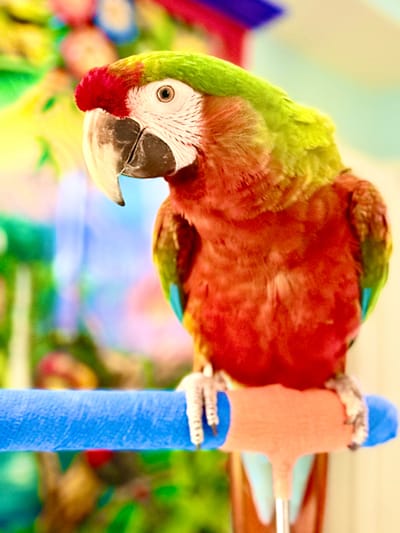
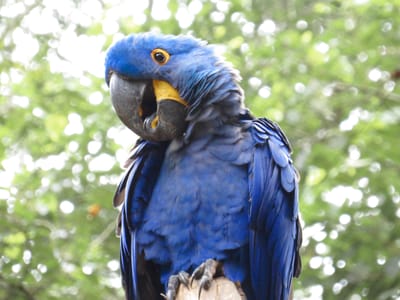
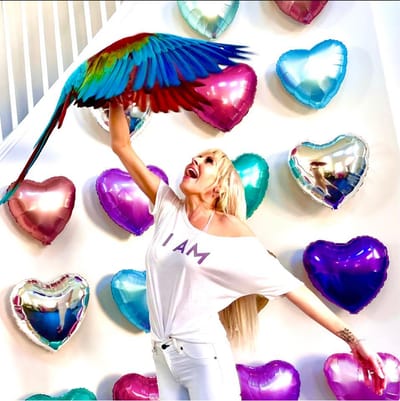
PLEASE CONSIDER DONATING TODAY! Our official, 501(c)(3), Non-Profit, is funded by your generosity. Any and all financial donations help our flock so much, and are greatly appreciated! Keep scrolling down to our Donorbox link to find out how you can donate one time, or monthly! We take all forms of payment through our website.
ADOPTION PROCESS: (This is repeated multiple times throughout our website.)
(PAY YOUR MINIMUM $25 APPLICATION FEE/DONATION FIRST. AFTER DOING SO, YOU CAN REQUEST AN APPLICATION FROM THIS WEBSITE, AND WE WILL SEND YOU ONE IMMEDIATELY TO FILL OUT AND EMAIL BACK. NO CALLS, OR TEXTS ABOUT ADOPTIONS. (Only call or text us about surrenders. All other inquiries must be emailed.)
APPLICATION FEE: In order to apply to adopt one of our parrots, (and be placed on our waiting list,) there is a minimum $25 application donation fee. All donations, and this minimum $25 application fee, can be made right here through this website, (which could take up to two weeks to process,) or you can Zelle to Beth Sullivan, 904-775-1211, or Venmo @rainbowparrotrescueflorida for your application request to be received immediately. We will email you an application, as soon as your donation is made. We do request you fill out your application, and send it back within 24 hours of receiving it. Please do not request an application if you have not paid the $25 fee.
********************************************
PARROTS AVAILABLE FOR ADOPTION: (UPDATED Feb. 28th, 2026)
1 Common Grey Cockatiel, DNA'd Male, Health Certified, 4 years old
***IMPORTANT: DON'T FORGET, BE SURE TO PAY YOUR $25 APPLICATION FEE TO GET ON OUR WAITING LIST! JUST BECAUSE YOU DON'T SEE A PARROT AVAILABLE NOW, DOESN'T MEAN YOU SHOULDN'T APPLY! STAY AHEAD BY GETTING YOUR APPLICATION IN NOW TO BE ON OUR WAITING LIST FOR ALL PARROTS!!***
********************************************
SUPPLIES & ITEM DONATIONS DESPERATELY NEEDED:
(Here are the items we desperately need, and will be able to accept immediately. Just email us, and we can tell you how to drop them off, and make sure you get a tax deductible receipt for your donation.)
*Rust free cages. (Preferably not small wired cages.)
*New toys only.
*New or gently used Java or Dragonwood stands.
*New or gently used rolling stands with no rust.
*New or gently used play stands with no rust.
*Unopened food. (No seeds, unless it is for a treat.) We use pellets only.
*New or gently used travel carriers.
*New or very gently used perches.
*New Vet/Bandage Wrap (Amazon link below, also.)
*New shower/window perches
*Bowls (Both travel, and stainless steel cage bowls are needed.)
WHAT WE CANNOT ACCEPT:
*Opened bags of bird food.
*Used toys.
*Overly used perches.
*Anything with rust on it, unless it's a large cage, where only the hardware is rusted. If the rest of the cage is in good condition, we can replace hardware and wheels.
*Anything that has come from a home with a smoker.
*Cages extensively used, or with rust, or any damage.
*Snuggle nests or tents.
*Anything used, or unclean with feces or rust on it.
*Anything broken, unfixed, or extremely dirty.
*Used toys.
*****************************************************
*Rainbow Parrot Rescue Florida is a 501(c)(3), Non-Profit, Tax Exempt Corporation: EIN# 87-3407588, and founded "officially," in July 2021.*
*Florida Department of Agriculture and Consumer Services: "The Solicitation of Contributions Act," Certified.*
*Permit to Possess/Exhibit/Class III Wildlife for Commercial Use (ESC) via Florida Fish Wildlife Conservation Commission
ADOPTION PROCESS: (This is repeated multiple times throughout our website.)
(PAY YOUR MINIMUM $25 APPLICATION FEE/DONATION FIRST. AFTER DOING SO, YOU CAN REQUEST AN APPLICATION FROM THIS WEBSITE, AND WE WILL SEND YOU ONE IMMEDIATELY TO FILL OUT AND EMAIL BACK. NO CALLS, OR TEXTS ABOUT ADOPTIONS. (Only call or text us about surrenders. All other inquiries must be emailed.)
APPLICATION FEE: In order to apply to adopt one of our parrots, (and be placed on our waiting list,) there is a minimum $25 application donation fee. All donations, and this minimum $25 application fee, can be made right here through this website, (which could take up to two weeks to process,) or you can Zelle to Beth Sullivan, 904-775-1211, or Venmo @rainbowparrotrescueflorida for your application request to be received immediately. We will email you an application, as soon as your donation is made. We do request you fill out your application, and send it back within 24 hours of receiving it. Please do not request an application if you have not paid the $25 fee.
********************************************
PARROTS AVAILABLE FOR ADOPTION: (UPDATED Feb. 28th, 2026)
1 Common Grey Cockatiel, DNA'd Male, Health Certified, 4 years old
***IMPORTANT: DON'T FORGET, BE SURE TO PAY YOUR $25 APPLICATION FEE TO GET ON OUR WAITING LIST! JUST BECAUSE YOU DON'T SEE A PARROT AVAILABLE NOW, DOESN'T MEAN YOU SHOULDN'T APPLY! STAY AHEAD BY GETTING YOUR APPLICATION IN NOW TO BE ON OUR WAITING LIST FOR ALL PARROTS!!***
********************************************
SUPPLIES & ITEM DONATIONS DESPERATELY NEEDED:
(Here are the items we desperately need, and will be able to accept immediately. Just email us, and we can tell you how to drop them off, and make sure you get a tax deductible receipt for your donation.)
*Rust free cages. (Preferably not small wired cages.)
*New toys only.
*New or gently used Java or Dragonwood stands.
*New or gently used rolling stands with no rust.
*New or gently used play stands with no rust.
*Unopened food. (No seeds, unless it is for a treat.) We use pellets only.
*New or gently used travel carriers.
*New or very gently used perches.
*New Vet/Bandage Wrap (Amazon link below, also.)
*New shower/window perches
*Bowls (Both travel, and stainless steel cage bowls are needed.)
WHAT WE CANNOT ACCEPT:
*Opened bags of bird food.
*Used toys.
*Overly used perches.
*Anything with rust on it, unless it's a large cage, where only the hardware is rusted. If the rest of the cage is in good condition, we can replace hardware and wheels.
*Anything that has come from a home with a smoker.
*Cages extensively used, or with rust, or any damage.
*Snuggle nests or tents.
*Anything used, or unclean with feces or rust on it.
*Anything broken, unfixed, or extremely dirty.
*Used toys.
*****************************************************
*Rainbow Parrot Rescue Florida is a 501(c)(3), Non-Profit, Tax Exempt Corporation: EIN# 87-3407588, and founded "officially," in July 2021.*
*Florida Department of Agriculture and Consumer Services: "The Solicitation of Contributions Act," Certified.*
*Permit to Possess/Exhibit/Class III Wildlife for Commercial Use (ESC) via Florida Fish Wildlife Conservation Commission
Surrender, FOSTER, ADOPT, SPONSOR, & MORE!
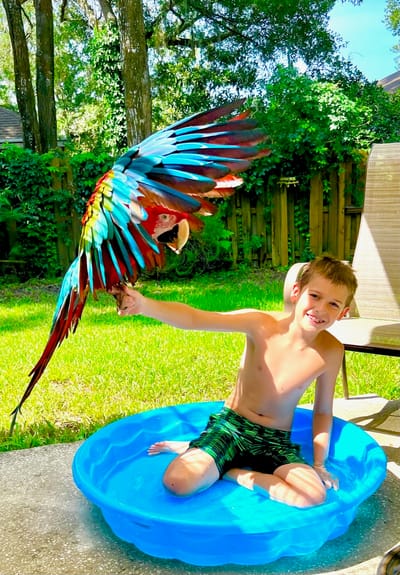
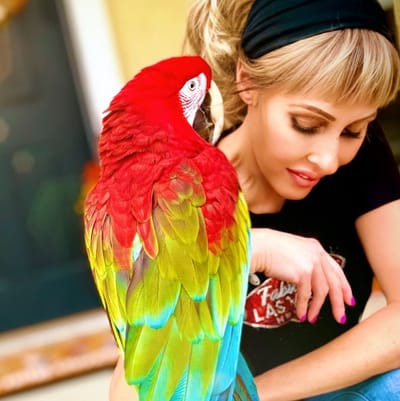
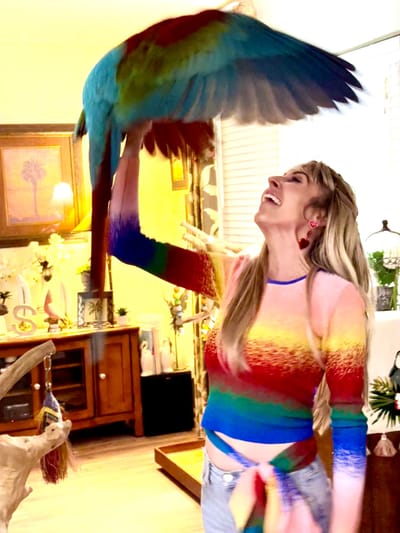
Rainbow Parrot Rescue Florida believes in education, healthy diets, lifetime, loving homes, and proper veterinary care, over all things. Please do your research on exotic parrot care, as well as breeds/species, before considering one as a pet. We believe you should be experienced, able to be at home most of the day, willing to learn, financially responsible, and have the right environment to accommodate the demanding needs of these amazing exotic animals. Typically, larger parrots do not make great pets. We strongly encourage you to do a lot of research regarding the adoption of any parrot species; especially larger ones; (i.e. macaws or cockatoos.) Please do your research on diet and nutrition needs of all parrots; from Budgies to Cockatoos. Parrots of all kinds, do not eat seeds as a part of their regular diet.
If you are interested in surrendering, fostering, adopting, sponsoring, or donating, please fill out the contact form below. We will email you an application upon request. Adoptions are available first to those who have properly requested and returned their application promptly. These people will be notified before anything is made public. So, it's best to get an application, and return it promptly to get on our waiting list! Our goal is to match the right parrot with it's, "forever home." This decision takes time. (Each situation may vary slightly.) If you are a monthly donor, sponsor, foster, or volunteer, please be sure to note it at the top of your application.
SURRENDERING YOUR PARROT, TOUCAN OR FLAMINGO:
If you are wanting to surrender your parrot, toucan, or flamingo, please contact us, and we will be sure to call you back promptly. (Scroll up for more information and details about surrendering your parrot.) We try to help all those we are able. Our surrendered birds should be known to be healthy, preferably vet checked within the year before surrendering them, (please bring paperwork if you have it,) and once we acquire the parrot(s), they will be quarantined, and bloodwork will be done, (if necessary,) to assure they're healthy to join our flock, before being put into our sanctuary, or before they are available for foster/adoption. ALL BIRDS SHOULD BE RESPONSIBLY, AND PROPERLY QUARANTINED WHEN BEING REHOMED. (NOTE: We do not promote "rehoming" fees for birds who are not properly vet checked, without proof!! This is the number one reason for scams.) There are too many scams, and every good owner puts money into their pets. But, every bird we accept, typically comes with an extremely expensive upkeep charge, and veterinary expense. We are a true nonprofit, but we are here to help you in absolutely any way we are able, and we will be accommodating when we know emergencies arise. We simply ask all people who are surrendering their parrots to be honest, fair, and let us help you arrange the perfect plan to keep you, your parrot, as well as our family, and our pets and parrots, safe too. Many avian illnesses can be contagious to other birds, as well as people. This is why regular vet visits, and/or bloodwork tests are our top priority, and should be yours too! Please know that if your bird is not vet checked, and has not had the proper bloodwork done, we can make arrangements to do that for you, and we are always willing to help. (Details above.) But, you will be asked to provide a minimum donation for this service if you cannot prove blood tests have been done recently. Please, know that surrendering your parrot is a relinquishment, and just like every rescue, you are not permitted to come back to visit, or ask about the bird you have surrendered. This is a basic requirement for every rescue in the country, but it is also common courtesy, and we feel a reminder is always necessary.
SURRENDER DETAILS -- PLEASE READ:
If you are a zoo, or organization looking for assistance with a toucan or flamingo, please call or text us immediately, and we will guide you with some unique instructions.
SURRENDER LINE ONLY: 904-775-1211
Surrendered birds must be PREFERABLY up-to-date on vet visits, and/or bloodwork, to be able to come to Rainbow Parrot Rescue Florida. We are not veterinarians, and do not do extensive rehab on parrots. We do some behavior training, but cannot take in sick, injured, nicotine addicted, or unhealthy birds without full donations to do so, and we must assess the situation first. Proof of a negative Polyomavirus, Avian Psittacosis, (Chlaymdia,) Feather and Beak Disease, and DNA sexing are imperative. (Grooming does not count for proof of veterinary care, but we do need to see any and all visits made, and you must be honest about any known former care.) If these are not done, we can get them done for you, but there will be a minimum donation to do this. Details can be provided over the phone. All situations are unique, and we understand this. We will help in any way we possibly can.
PLEASE NOTE: All donations are non-refundable, and non-returnable! A tax deductible receipt will be given to you for your donation(s); (for financial and items donated.) If a bird is deemed sick with a contagious disease that will put our other birds or family at risk; you must come pick up the bird with in 4 hours of the results found. If you can prove your parrot has been to the vet within the past year, and has had the proper testing, and DNA sexing done, please let us know; as you are not required to make a donation if the parrot is properly up to date, and properly vetted.
All owners/care takers surrendering a bird(s), will sign a "Surrender Release Form," and will be given a tax deductible receipt for any items, toys, cages, stands, Java Trees, perches, or unopened food, donated with the parrot. (If you donate these items, please do not ask for your donations back.) Our parrots who stay in our, "home sanctuary," during training, and being health monitored, as well as the ones who are ready for adoption, are health checked, DNA sexed, typically microchipped, (if of the proper weight,) and always given love, attention, and behavior training before even being considered for foster, or adoption. This is part of the proven process we use to help find the perfect home, when and if, that is the case. We are an open line of communication, and always up front, and honest about our process, plans, and your wishes! We believe transparency is extremely important, and greatly lacking in the community of parrot and toucan owners. We strive to change this. We also will be up front, and let you know that once the bird is surrendered, you will not be permitted to see your bird again. This seems to be a given situation, but for some, they need to be reminded that you're surrendering your bird, and once done, you have no rights to your prior pet anymore.
We truly appreciate donations for our parrots being surrendered. Again, sometimes there is a minimum financial requirement based on the veterinary care the bird may, or may not need. However, we are willing to work with everyone we can. So, please don't hesitate to ask questions. (Usually arrangements can be made to assist you.) Join our mission! Support the cause, and be a part of making a difference, and spreading kindness and love to our amazing bird community!
***********************************************
ADOPTION PROCESS: (This is repeated multiple times throughout our website.)
(PAY YOUR MINIMUM $25 APPLICATION FEE/DONATION. AFTER DOING SO, YOU CAN REQUEST AN APPLICATION FROM THIS WEBSITE, AND WE WILL SEND YOU ONE IMMEDIATELY TO FILL OUT AND EMAIL BACK. NO CALLS, OR TEXTS ABOUT ADOPTIONS. (Only call or text us about surrenders. All other inquiries must be emailed.)
APPLICATION FEE: In order to apply to adopt one of our parrots, (and be placed on our waiting list,) there is a minimum $25 application donation fee. All donations, and this minimum $25 application fee, can be made right here through this website, (which could take up to two weeks to process,) or you can Zelle to Beth Sullivan, 904-775-1211, or Venmo @rainbowparrotrescueflorida for your application request to be received immediately. We will email you an application, as soon as your donation is made. We do request you fill out your application, and send it back within 24 hours of receiving it. Please do not request an application if you have not paid the $25 fee.
***********************************
PARROTS AVAILABLE FOR ADOPTION: (UPDATED Feb. 28th, 2026)
1 Common Grey Cockatiel, DNA'd Male, Health Certified, 4 years old
***IMPORTANT: DON'T FORGET, BE SURE TO PAY YOUR $25 APPLICATION FEE TO GET ON OUR WAITING LIST! JUST BECAUSE YOU DON'T SEE A PARROT AVAILABLE NOW, DOESN'T MEAN YOU SHOULDN'T APPLY! STAY AHEAD BY GETTING YOUR APPLICATION IN NOW TO BE ON OUR WAITING LIST FOR ALL PARROTS!!***
**************************************
PLEASE READ OUR PARROT 101 RULES/BASICS BEFOR APPLYING!
(Each parrot has a minimum adoption fee. Only those who have properly requested, filled out, sent back, and are called because they are a match, will be notified of that minimum donation. All donations will be tax deductible.)
(Each parrot has a minimum adoption fee. Only those who have properly requested, filled out, sent back, and are called because they are a match, will be notified of that minimum donation. All donations will be tax deductible.) No calls or texts regarding adoptions. Our phone number is for surrenders ONLY. Thank you.
(PLEASE NOTE ON YOUR APPLICATION, WHICH BIRD YOU ARE INTERESTED IN. EVEN IF AN ADOPTION IS PENDING, YOU CAN STILL APPLY.)
Most of our available parrots are vetted, DNA sexed, de-banded, extensively behavior trained, & socialized with people, pets, and children, and most are microchipped. (Each is an individual. We will only call you if you are the right fit for one of these birds.) All our birds come with a Health Certificate, and proof of DNA sexing.
(PAY YOUR APPLICATION FEE THROUGH THE LINK ON THIS WEBSITE. THEN, EMAIL A REQUEST FOR AN APPLICATION FROM THIS WEBSITE, AND WE WILL SEND YOU ONE IMMEDIATELY TO FILL OUT AND EMAIL BACK.
NO CALLS, OR TEXTS ABOUT ADOPTIONS. -- OUR PHONE NUMBER IS FOR PARROT, TOUCAN & FLAMINGO SURRENDERS ONLY!!!
Our parrots are always health certified, usually fully vetted, and/or come with an updated Health Certificate, with proof of DNA sexing. They're de-banded, usually extensively behavior trained, & always socialized with people, pets, and children; and most are microchipped. (Each parrot is an individual. We will only call you if you are the right fit for one of these birds.)
We are not a store front, and do not accept walk-ins. We are a home based, private rescue and sanctuary, but we love to show off our amazing aviaries, and personal, "Enchanted Tiki Rooms!" Check out the photos and videos for all our, "behind the scenes," fun, and a look inside our entire home! Anyone surrendering, or adopting a parrot from us is always given a tour upon request! We absolutely want to make sure you know where your pet is going, or where it is coming from, and are happy to show you around! But, this is not an option open to the public!
**********************************
Please request an application from this website, fill it out, and return it promptly to be put on our waiting list. We will call those who requested and filled out an application, and joined our our waiting list, first. Please do not call about parrots up for adoption. Only those who are on the waiting list will be notified. We rarely post our adoptions publicly, so be sure to get on the list today!
*********************************
WILD BIRDS: (We only work with parrots, toucans, and flamingos.)
Please note; we do not take in wildlife, or wild birds. We are not licensed to do so. (i.e. Starlings, Finch's, Jays, Hawks, Owls, Ducks, Eagles, etc....) We are an exotic parrot, toucan, and flamingo rescue/sanctuary only. Do not ever try to touch wildlife or wild birds.
We do not take calls for wildlife, or injured wild birds either. Please call the Wildlife Coalition of NE Florida at 904-779-5569, or Florida Fish and Wildlife, (FWC.) Thank you.
********************************
OUR STANCE:
Generally, parrots do not make great pets, (especially larger parrots.) Toucans & flamingos should not be pets. Our toucans and flamingos are used for "educational purposes," and unless you are an avian expert, you should NEVER own one, or support private ownership. We do our best to educate everyone who wants to adopt a parrot, and assist zoos and other professional organizations with parrots, toucans, and flamingos. Call us today if you have a parrot, toucan, or flamingo to surrender, or if you simply need guidance. We are here to help you has much as we can.
*****************************************************
*Rainbow Parrot Rescue Florida is a 501(c)(3), Non-Profit, Tax Exempt Corporation: EIN# 87-3407588, and founded "officially," in July 2021.*
*Florida Department of Agriculture and Consumer Services: "The Solicitation of Contributions Act," Certified.*
*Permit to Possess/Exhibit/Class III Wildlife for Commercial Use (ESC) via Florida Fish Wildlife Conservation Commission
If you are interested in surrendering, fostering, adopting, sponsoring, or donating, please fill out the contact form below. We will email you an application upon request. Adoptions are available first to those who have properly requested and returned their application promptly. These people will be notified before anything is made public. So, it's best to get an application, and return it promptly to get on our waiting list! Our goal is to match the right parrot with it's, "forever home." This decision takes time. (Each situation may vary slightly.) If you are a monthly donor, sponsor, foster, or volunteer, please be sure to note it at the top of your application.
SURRENDERING YOUR PARROT, TOUCAN OR FLAMINGO:
If you are wanting to surrender your parrot, toucan, or flamingo, please contact us, and we will be sure to call you back promptly. (Scroll up for more information and details about surrendering your parrot.) We try to help all those we are able. Our surrendered birds should be known to be healthy, preferably vet checked within the year before surrendering them, (please bring paperwork if you have it,) and once we acquire the parrot(s), they will be quarantined, and bloodwork will be done, (if necessary,) to assure they're healthy to join our flock, before being put into our sanctuary, or before they are available for foster/adoption. ALL BIRDS SHOULD BE RESPONSIBLY, AND PROPERLY QUARANTINED WHEN BEING REHOMED. (NOTE: We do not promote "rehoming" fees for birds who are not properly vet checked, without proof!! This is the number one reason for scams.) There are too many scams, and every good owner puts money into their pets. But, every bird we accept, typically comes with an extremely expensive upkeep charge, and veterinary expense. We are a true nonprofit, but we are here to help you in absolutely any way we are able, and we will be accommodating when we know emergencies arise. We simply ask all people who are surrendering their parrots to be honest, fair, and let us help you arrange the perfect plan to keep you, your parrot, as well as our family, and our pets and parrots, safe too. Many avian illnesses can be contagious to other birds, as well as people. This is why regular vet visits, and/or bloodwork tests are our top priority, and should be yours too! Please know that if your bird is not vet checked, and has not had the proper bloodwork done, we can make arrangements to do that for you, and we are always willing to help. (Details above.) But, you will be asked to provide a minimum donation for this service if you cannot prove blood tests have been done recently. Please, know that surrendering your parrot is a relinquishment, and just like every rescue, you are not permitted to come back to visit, or ask about the bird you have surrendered. This is a basic requirement for every rescue in the country, but it is also common courtesy, and we feel a reminder is always necessary.
SURRENDER DETAILS -- PLEASE READ:
If you are a zoo, or organization looking for assistance with a toucan or flamingo, please call or text us immediately, and we will guide you with some unique instructions.
SURRENDER LINE ONLY: 904-775-1211
Surrendered birds must be PREFERABLY up-to-date on vet visits, and/or bloodwork, to be able to come to Rainbow Parrot Rescue Florida. We are not veterinarians, and do not do extensive rehab on parrots. We do some behavior training, but cannot take in sick, injured, nicotine addicted, or unhealthy birds without full donations to do so, and we must assess the situation first. Proof of a negative Polyomavirus, Avian Psittacosis, (Chlaymdia,) Feather and Beak Disease, and DNA sexing are imperative. (Grooming does not count for proof of veterinary care, but we do need to see any and all visits made, and you must be honest about any known former care.) If these are not done, we can get them done for you, but there will be a minimum donation to do this. Details can be provided over the phone. All situations are unique, and we understand this. We will help in any way we possibly can.
PLEASE NOTE: All donations are non-refundable, and non-returnable! A tax deductible receipt will be given to you for your donation(s); (for financial and items donated.) If a bird is deemed sick with a contagious disease that will put our other birds or family at risk; you must come pick up the bird with in 4 hours of the results found. If you can prove your parrot has been to the vet within the past year, and has had the proper testing, and DNA sexing done, please let us know; as you are not required to make a donation if the parrot is properly up to date, and properly vetted.
All owners/care takers surrendering a bird(s), will sign a "Surrender Release Form," and will be given a tax deductible receipt for any items, toys, cages, stands, Java Trees, perches, or unopened food, donated with the parrot. (If you donate these items, please do not ask for your donations back.) Our parrots who stay in our, "home sanctuary," during training, and being health monitored, as well as the ones who are ready for adoption, are health checked, DNA sexed, typically microchipped, (if of the proper weight,) and always given love, attention, and behavior training before even being considered for foster, or adoption. This is part of the proven process we use to help find the perfect home, when and if, that is the case. We are an open line of communication, and always up front, and honest about our process, plans, and your wishes! We believe transparency is extremely important, and greatly lacking in the community of parrot and toucan owners. We strive to change this. We also will be up front, and let you know that once the bird is surrendered, you will not be permitted to see your bird again. This seems to be a given situation, but for some, they need to be reminded that you're surrendering your bird, and once done, you have no rights to your prior pet anymore.
We truly appreciate donations for our parrots being surrendered. Again, sometimes there is a minimum financial requirement based on the veterinary care the bird may, or may not need. However, we are willing to work with everyone we can. So, please don't hesitate to ask questions. (Usually arrangements can be made to assist you.) Join our mission! Support the cause, and be a part of making a difference, and spreading kindness and love to our amazing bird community!
***********************************************
ADOPTION PROCESS: (This is repeated multiple times throughout our website.)
(PAY YOUR MINIMUM $25 APPLICATION FEE/DONATION. AFTER DOING SO, YOU CAN REQUEST AN APPLICATION FROM THIS WEBSITE, AND WE WILL SEND YOU ONE IMMEDIATELY TO FILL OUT AND EMAIL BACK. NO CALLS, OR TEXTS ABOUT ADOPTIONS. (Only call or text us about surrenders. All other inquiries must be emailed.)
APPLICATION FEE: In order to apply to adopt one of our parrots, (and be placed on our waiting list,) there is a minimum $25 application donation fee. All donations, and this minimum $25 application fee, can be made right here through this website, (which could take up to two weeks to process,) or you can Zelle to Beth Sullivan, 904-775-1211, or Venmo @rainbowparrotrescueflorida for your application request to be received immediately. We will email you an application, as soon as your donation is made. We do request you fill out your application, and send it back within 24 hours of receiving it. Please do not request an application if you have not paid the $25 fee.
***********************************
PARROTS AVAILABLE FOR ADOPTION: (UPDATED Feb. 28th, 2026)
1 Common Grey Cockatiel, DNA'd Male, Health Certified, 4 years old
***IMPORTANT: DON'T FORGET, BE SURE TO PAY YOUR $25 APPLICATION FEE TO GET ON OUR WAITING LIST! JUST BECAUSE YOU DON'T SEE A PARROT AVAILABLE NOW, DOESN'T MEAN YOU SHOULDN'T APPLY! STAY AHEAD BY GETTING YOUR APPLICATION IN NOW TO BE ON OUR WAITING LIST FOR ALL PARROTS!!***
**************************************
PLEASE READ OUR PARROT 101 RULES/BASICS BEFOR APPLYING!
(Each parrot has a minimum adoption fee. Only those who have properly requested, filled out, sent back, and are called because they are a match, will be notified of that minimum donation. All donations will be tax deductible.)
(Each parrot has a minimum adoption fee. Only those who have properly requested, filled out, sent back, and are called because they are a match, will be notified of that minimum donation. All donations will be tax deductible.) No calls or texts regarding adoptions. Our phone number is for surrenders ONLY. Thank you.
(PLEASE NOTE ON YOUR APPLICATION, WHICH BIRD YOU ARE INTERESTED IN. EVEN IF AN ADOPTION IS PENDING, YOU CAN STILL APPLY.)
Most of our available parrots are vetted, DNA sexed, de-banded, extensively behavior trained, & socialized with people, pets, and children, and most are microchipped. (Each is an individual. We will only call you if you are the right fit for one of these birds.) All our birds come with a Health Certificate, and proof of DNA sexing.
(PAY YOUR APPLICATION FEE THROUGH THE LINK ON THIS WEBSITE. THEN, EMAIL A REQUEST FOR AN APPLICATION FROM THIS WEBSITE, AND WE WILL SEND YOU ONE IMMEDIATELY TO FILL OUT AND EMAIL BACK.
NO CALLS, OR TEXTS ABOUT ADOPTIONS. -- OUR PHONE NUMBER IS FOR PARROT, TOUCAN & FLAMINGO SURRENDERS ONLY!!!
Our parrots are always health certified, usually fully vetted, and/or come with an updated Health Certificate, with proof of DNA sexing. They're de-banded, usually extensively behavior trained, & always socialized with people, pets, and children; and most are microchipped. (Each parrot is an individual. We will only call you if you are the right fit for one of these birds.)
We are not a store front, and do not accept walk-ins. We are a home based, private rescue and sanctuary, but we love to show off our amazing aviaries, and personal, "Enchanted Tiki Rooms!" Check out the photos and videos for all our, "behind the scenes," fun, and a look inside our entire home! Anyone surrendering, or adopting a parrot from us is always given a tour upon request! We absolutely want to make sure you know where your pet is going, or where it is coming from, and are happy to show you around! But, this is not an option open to the public!
**********************************
Please request an application from this website, fill it out, and return it promptly to be put on our waiting list. We will call those who requested and filled out an application, and joined our our waiting list, first. Please do not call about parrots up for adoption. Only those who are on the waiting list will be notified. We rarely post our adoptions publicly, so be sure to get on the list today!
*********************************
WILD BIRDS: (We only work with parrots, toucans, and flamingos.)
Please note; we do not take in wildlife, or wild birds. We are not licensed to do so. (i.e. Starlings, Finch's, Jays, Hawks, Owls, Ducks, Eagles, etc....) We are an exotic parrot, toucan, and flamingo rescue/sanctuary only. Do not ever try to touch wildlife or wild birds.
We do not take calls for wildlife, or injured wild birds either. Please call the Wildlife Coalition of NE Florida at 904-779-5569, or Florida Fish and Wildlife, (FWC.) Thank you.
********************************
OUR STANCE:
Generally, parrots do not make great pets, (especially larger parrots.) Toucans & flamingos should not be pets. Our toucans and flamingos are used for "educational purposes," and unless you are an avian expert, you should NEVER own one, or support private ownership. We do our best to educate everyone who wants to adopt a parrot, and assist zoos and other professional organizations with parrots, toucans, and flamingos. Call us today if you have a parrot, toucan, or flamingo to surrender, or if you simply need guidance. We are here to help you has much as we can.
*****************************************************
*Rainbow Parrot Rescue Florida is a 501(c)(3), Non-Profit, Tax Exempt Corporation: EIN# 87-3407588, and founded "officially," in July 2021.*
*Florida Department of Agriculture and Consumer Services: "The Solicitation of Contributions Act," Certified.*
*Permit to Possess/Exhibit/Class III Wildlife for Commercial Use (ESC) via Florida Fish Wildlife Conservation Commission
Donate here
Contact
- Jacksonville, Florida
- +1-(904) 775-1211 - SURRENDERS ONLY! (Please email us regarding all other inquiries.)
- info@rainbowparrotrescueflorida.org
- Always Open!
